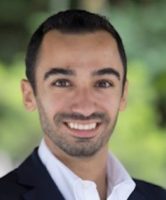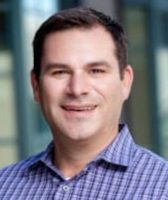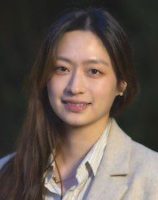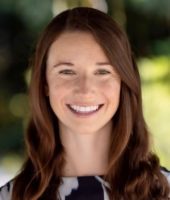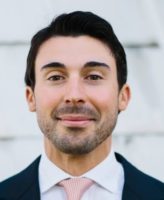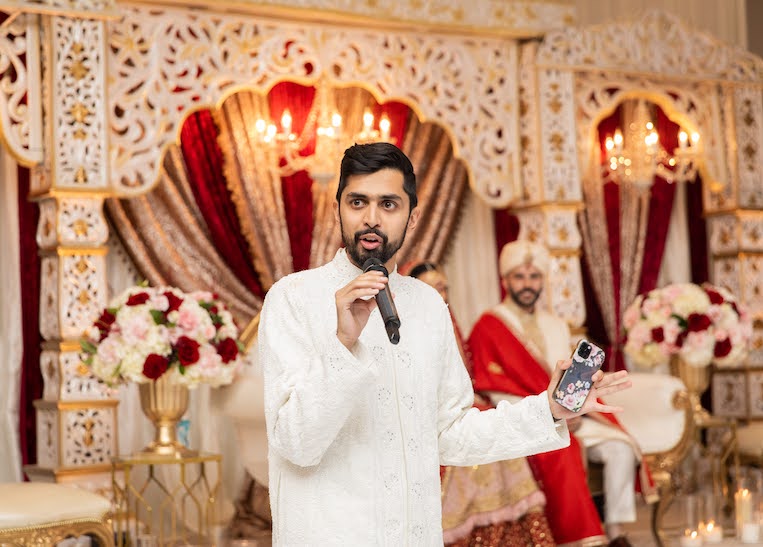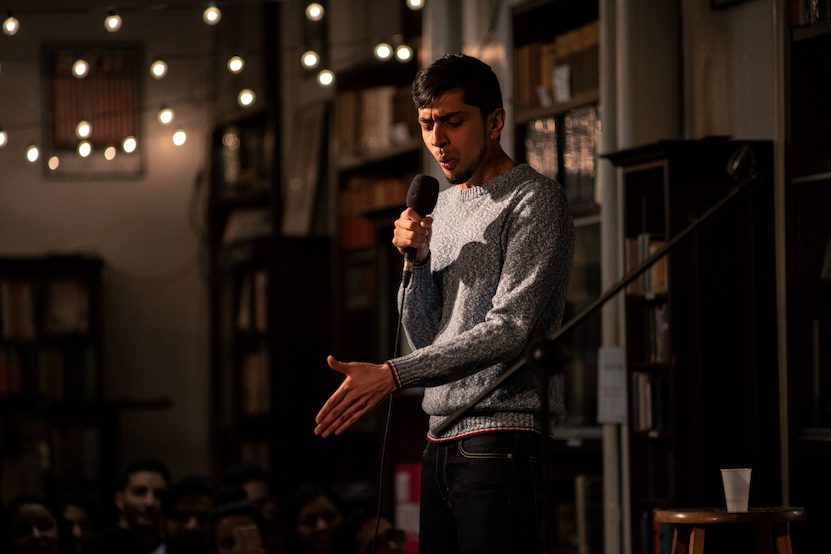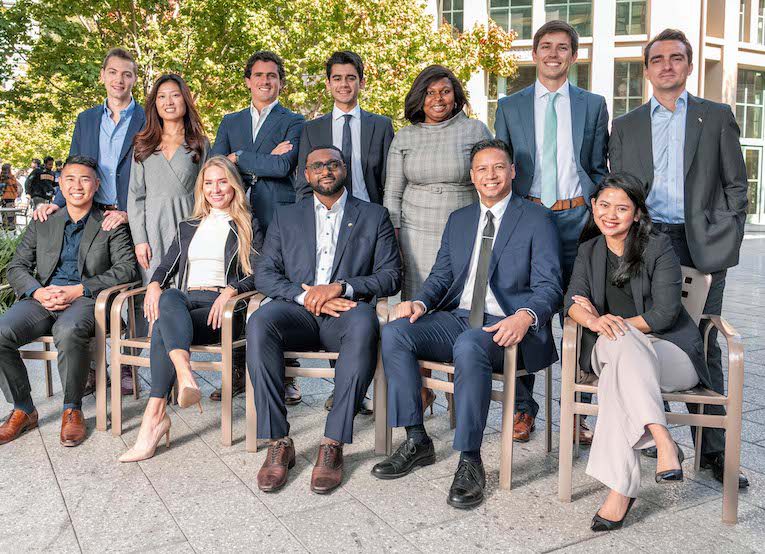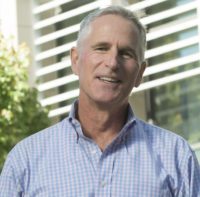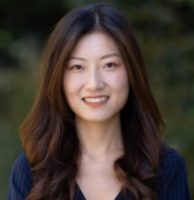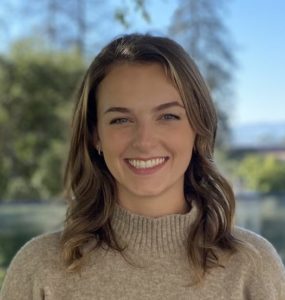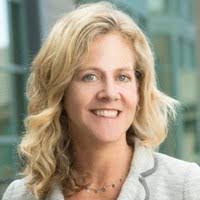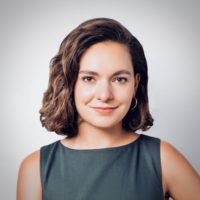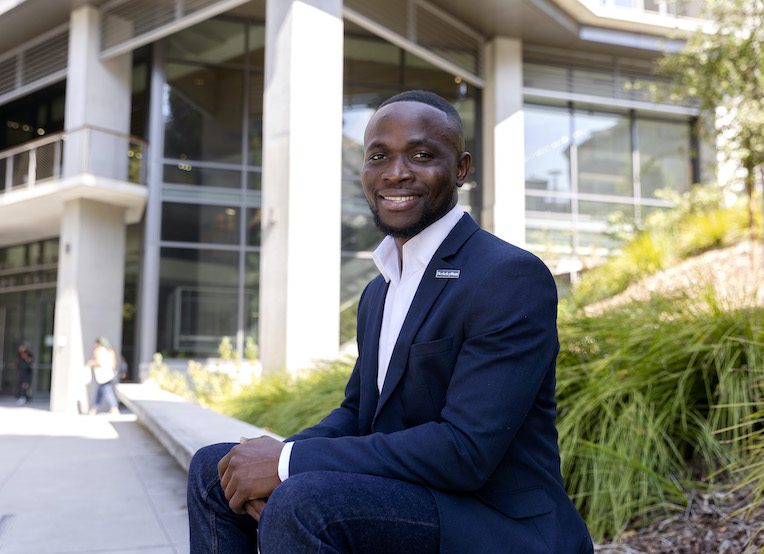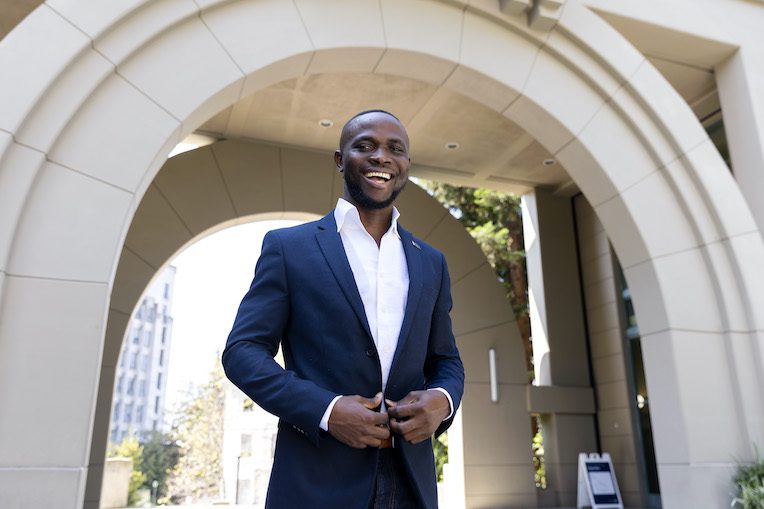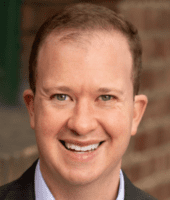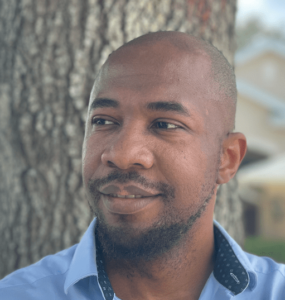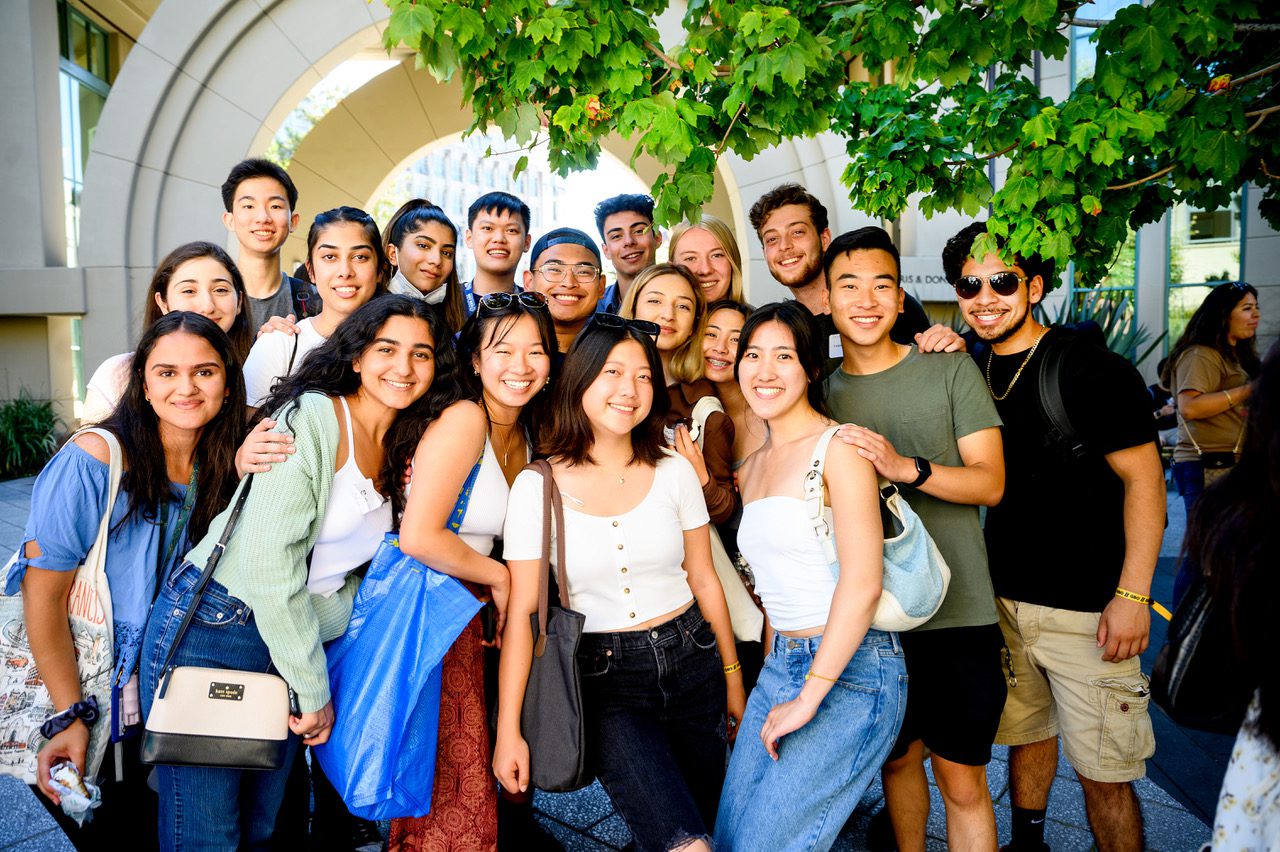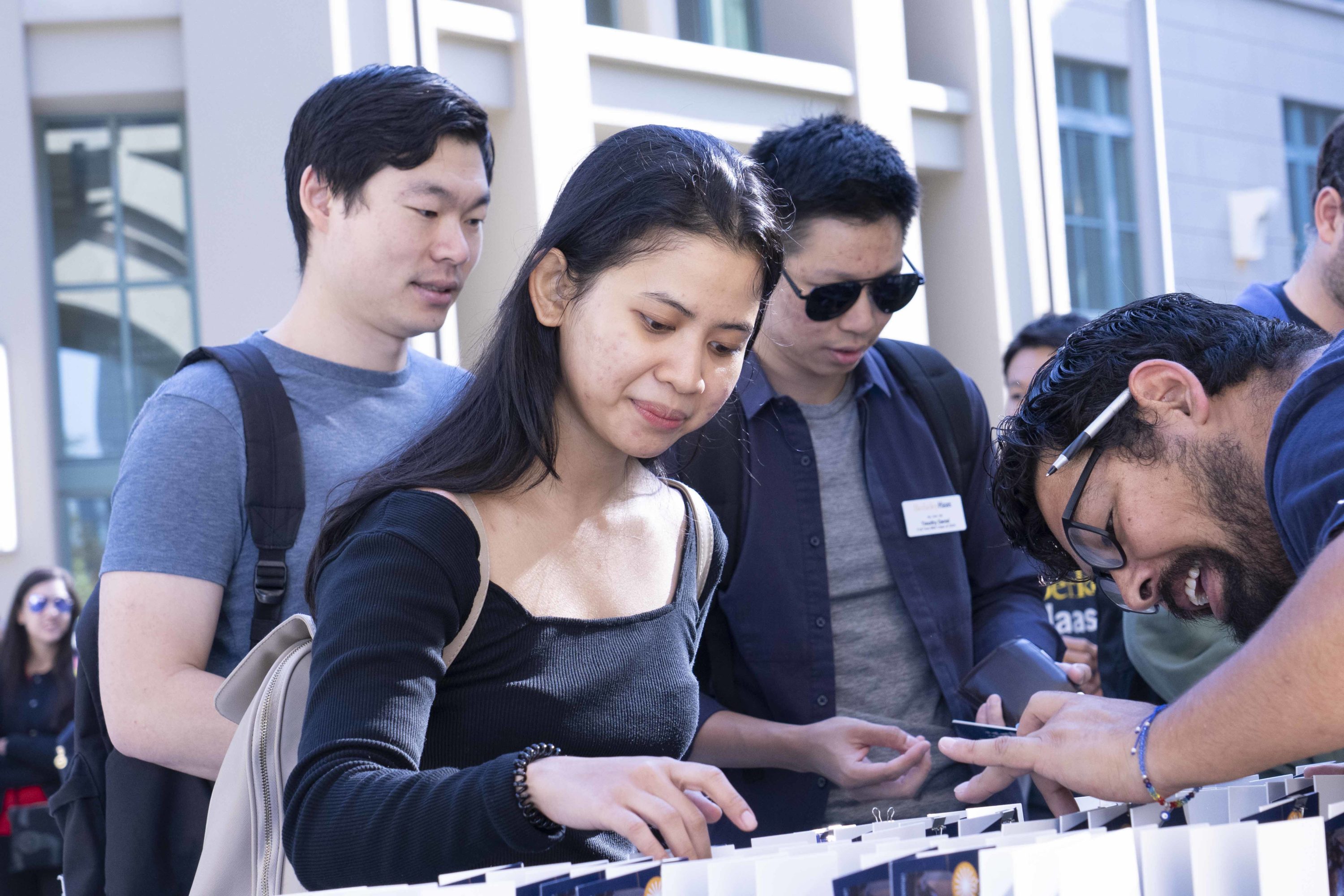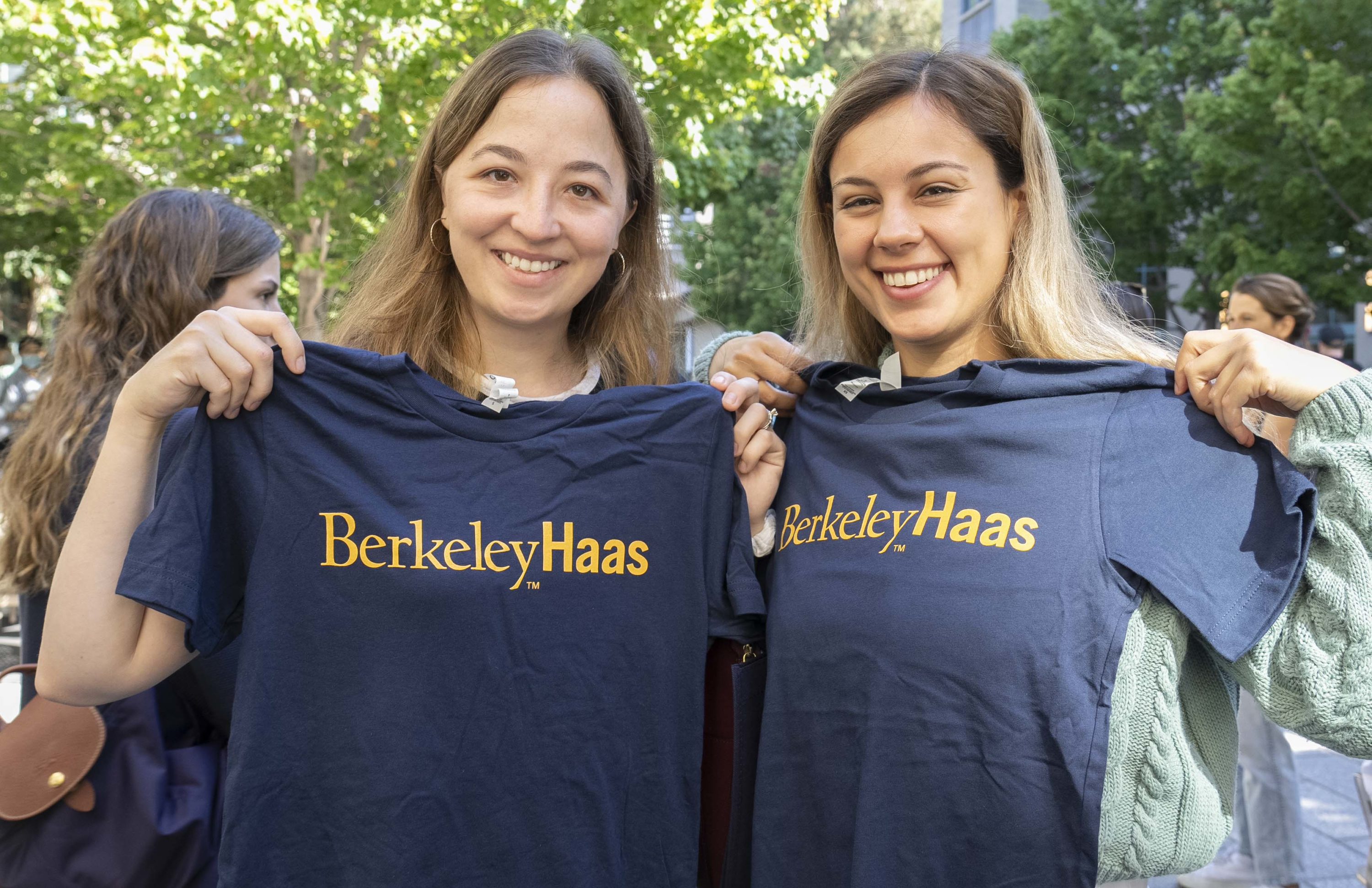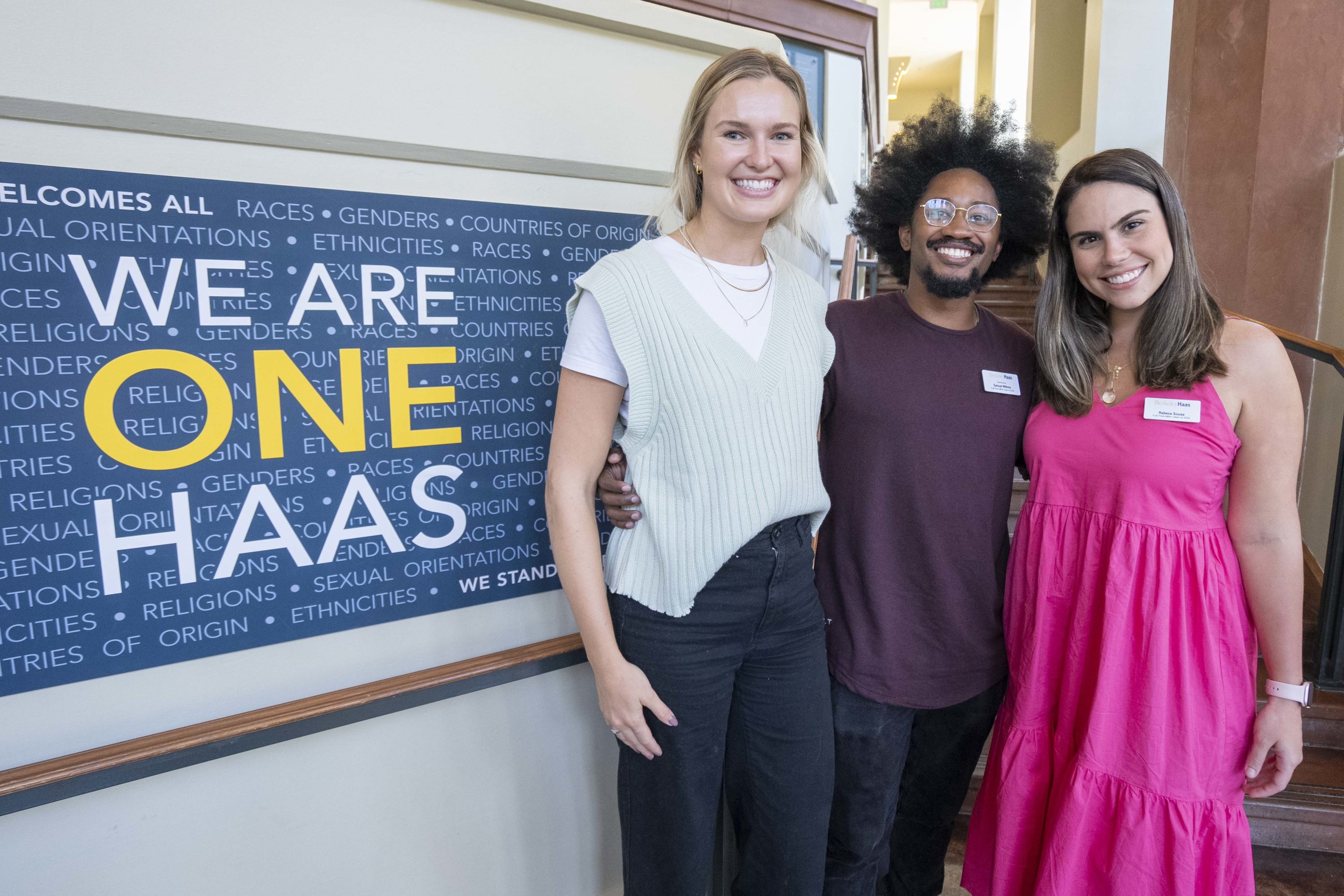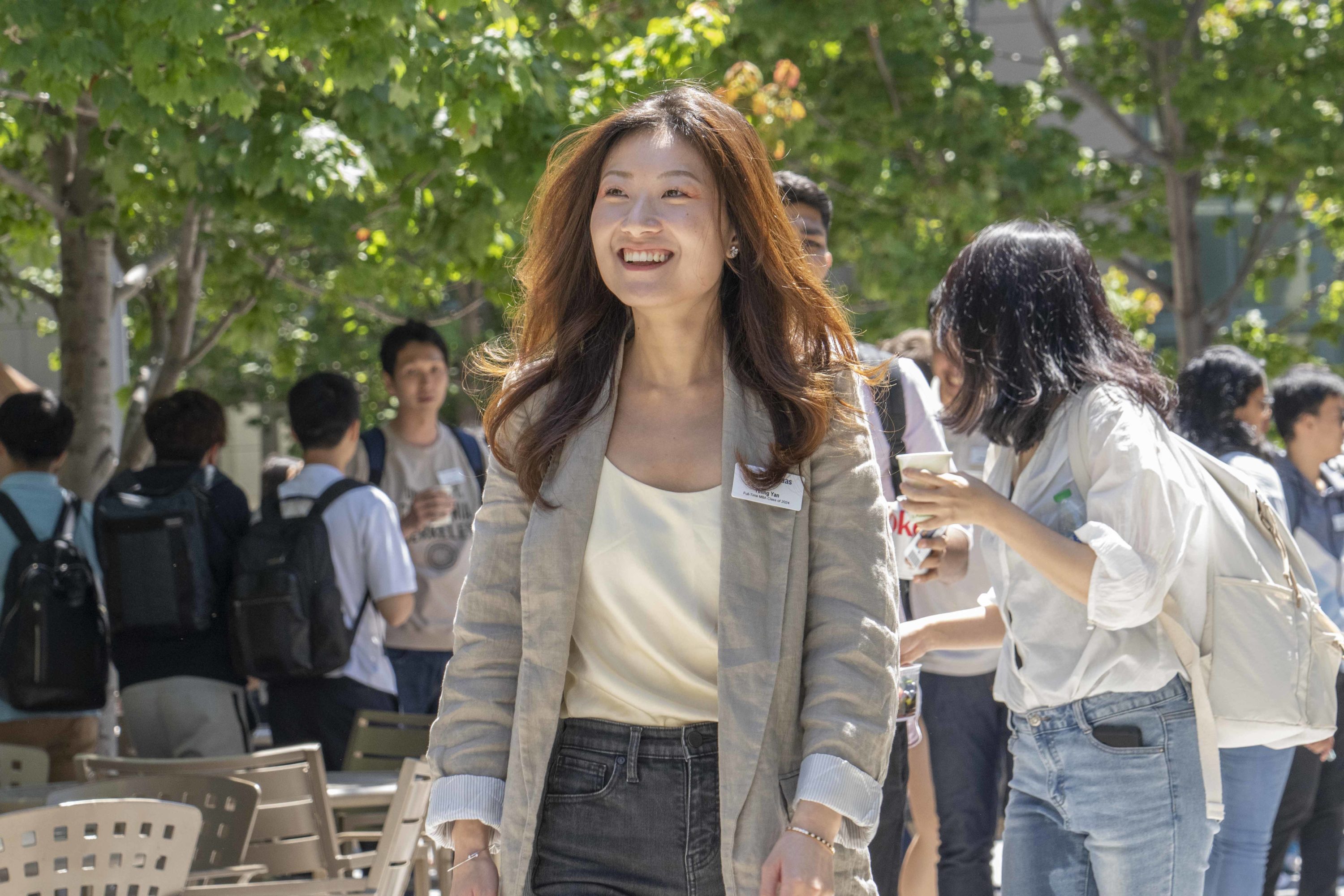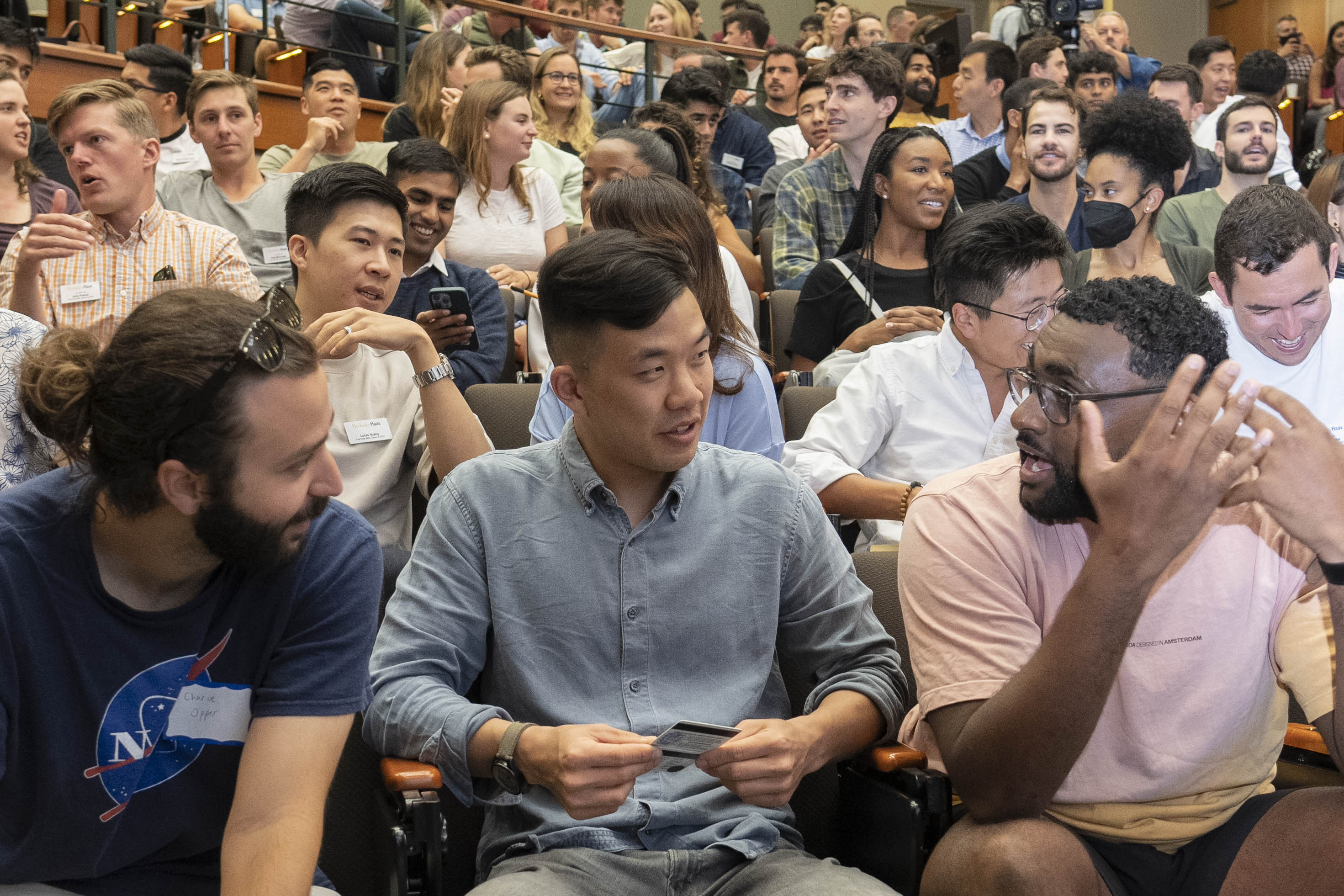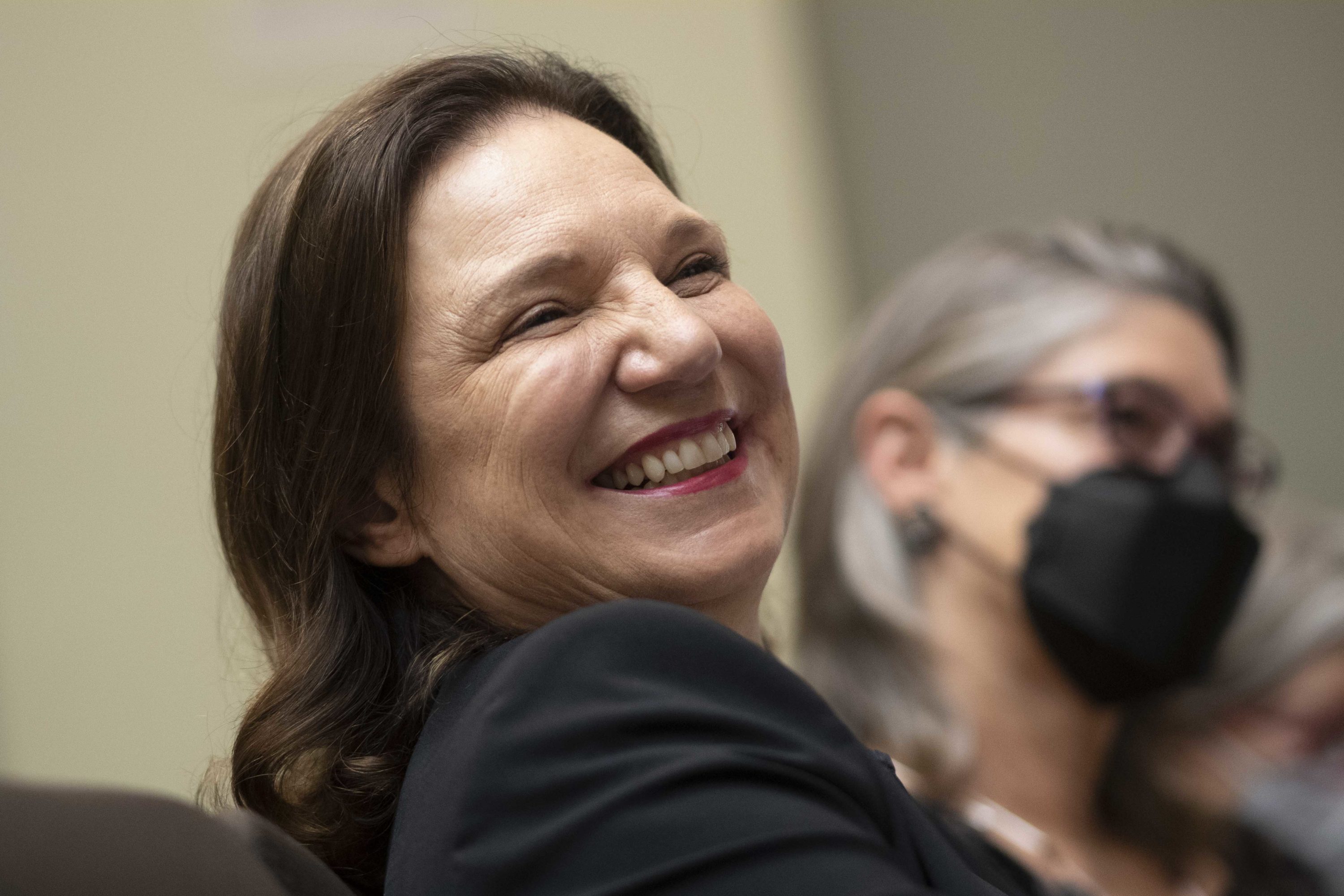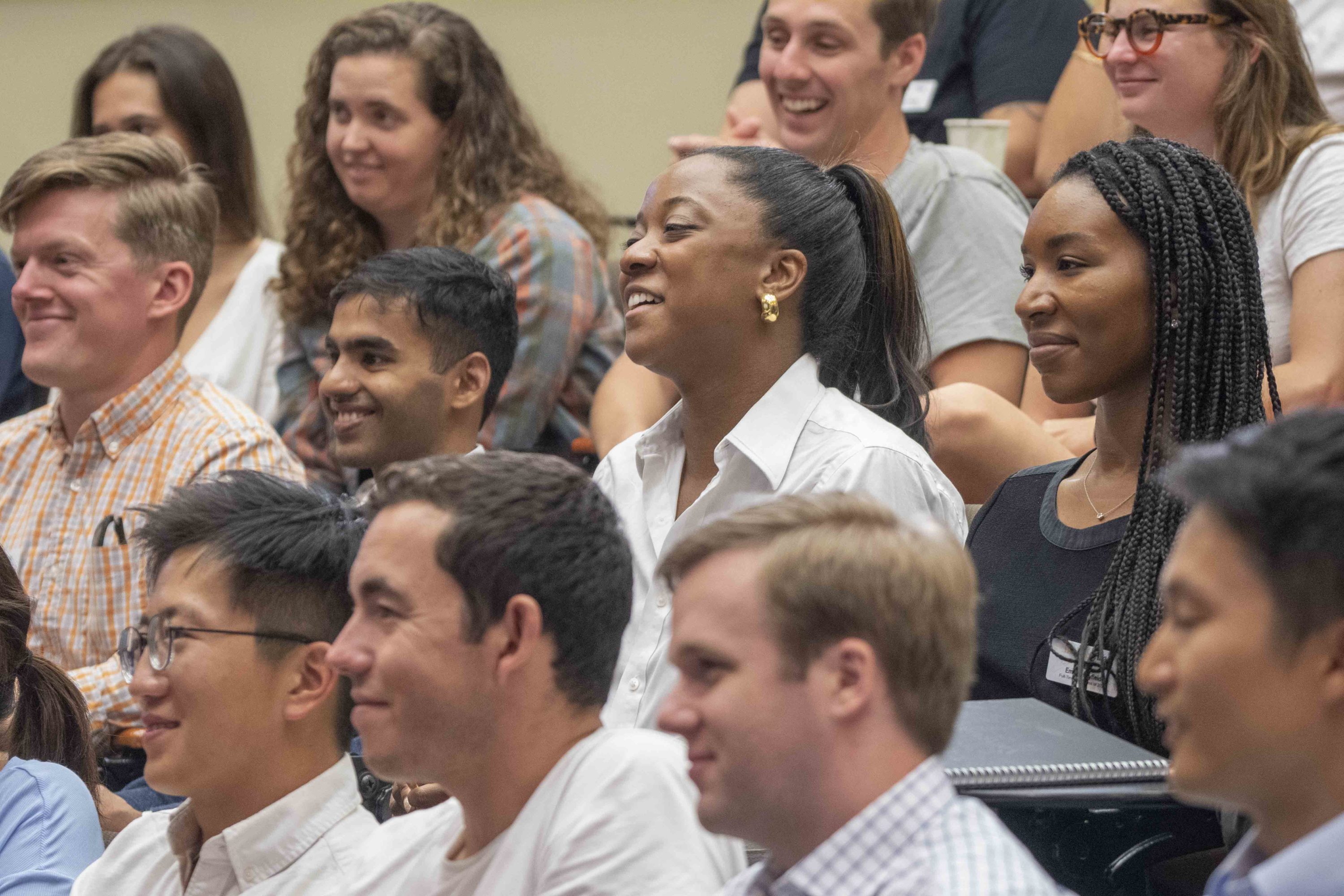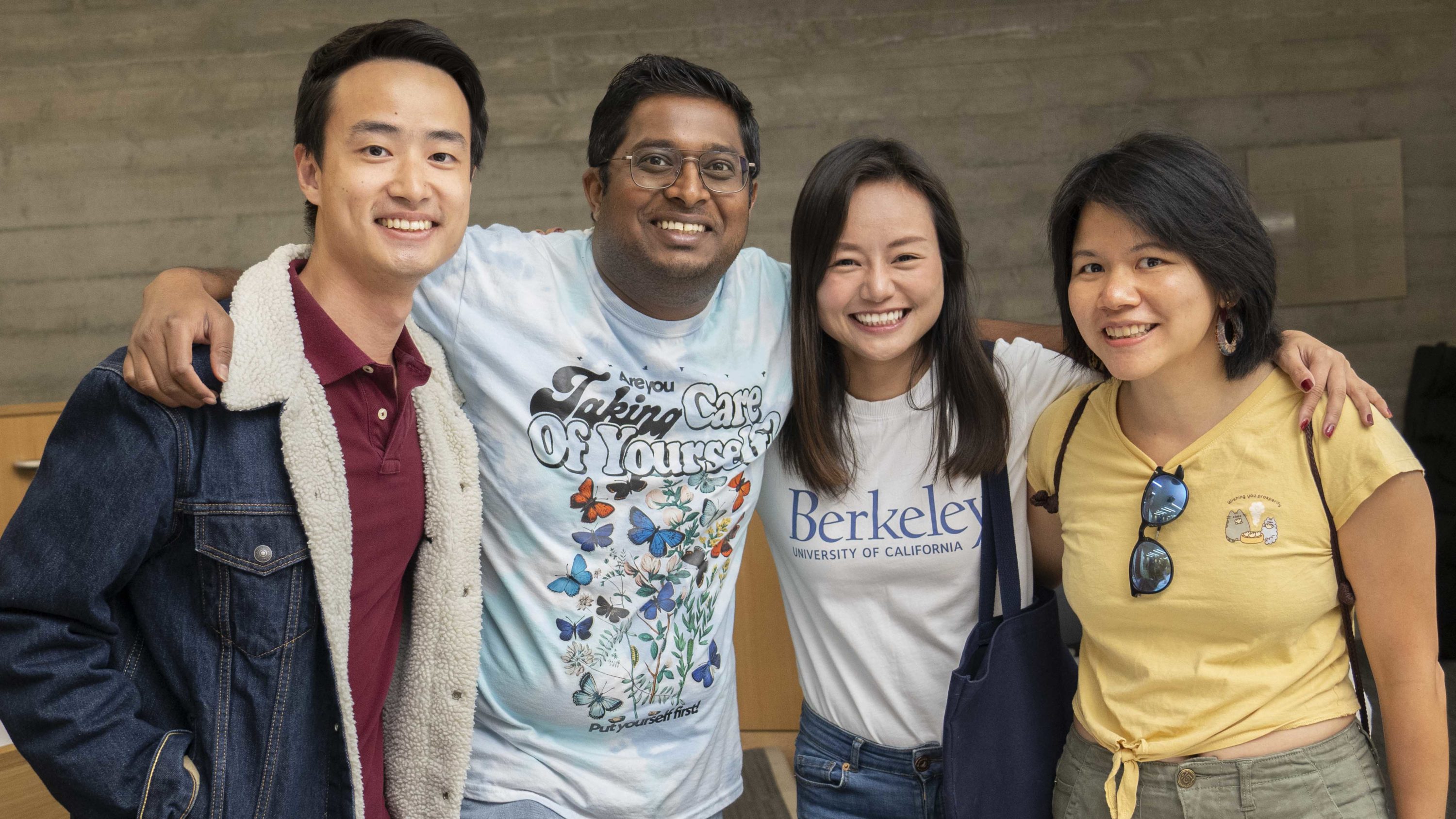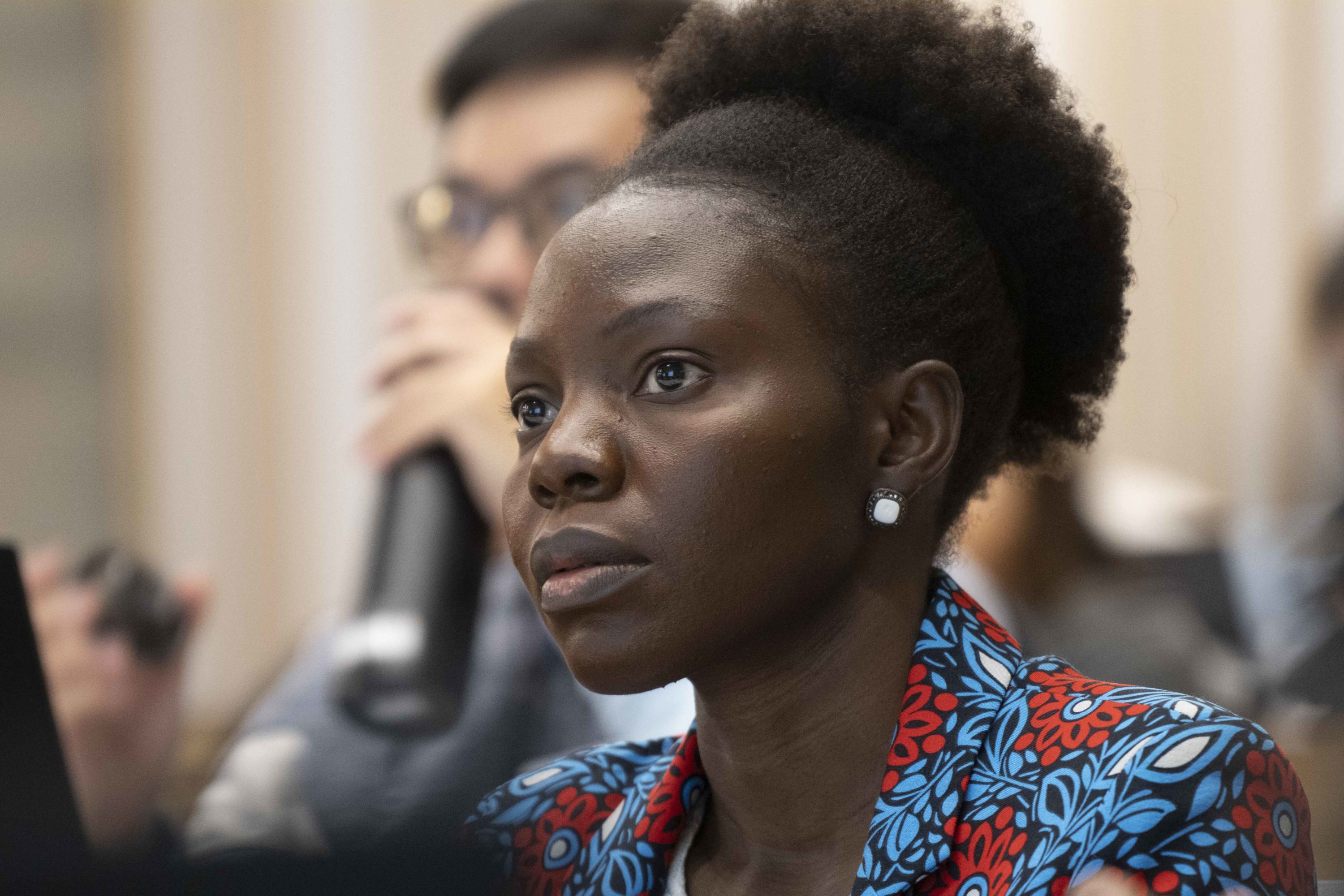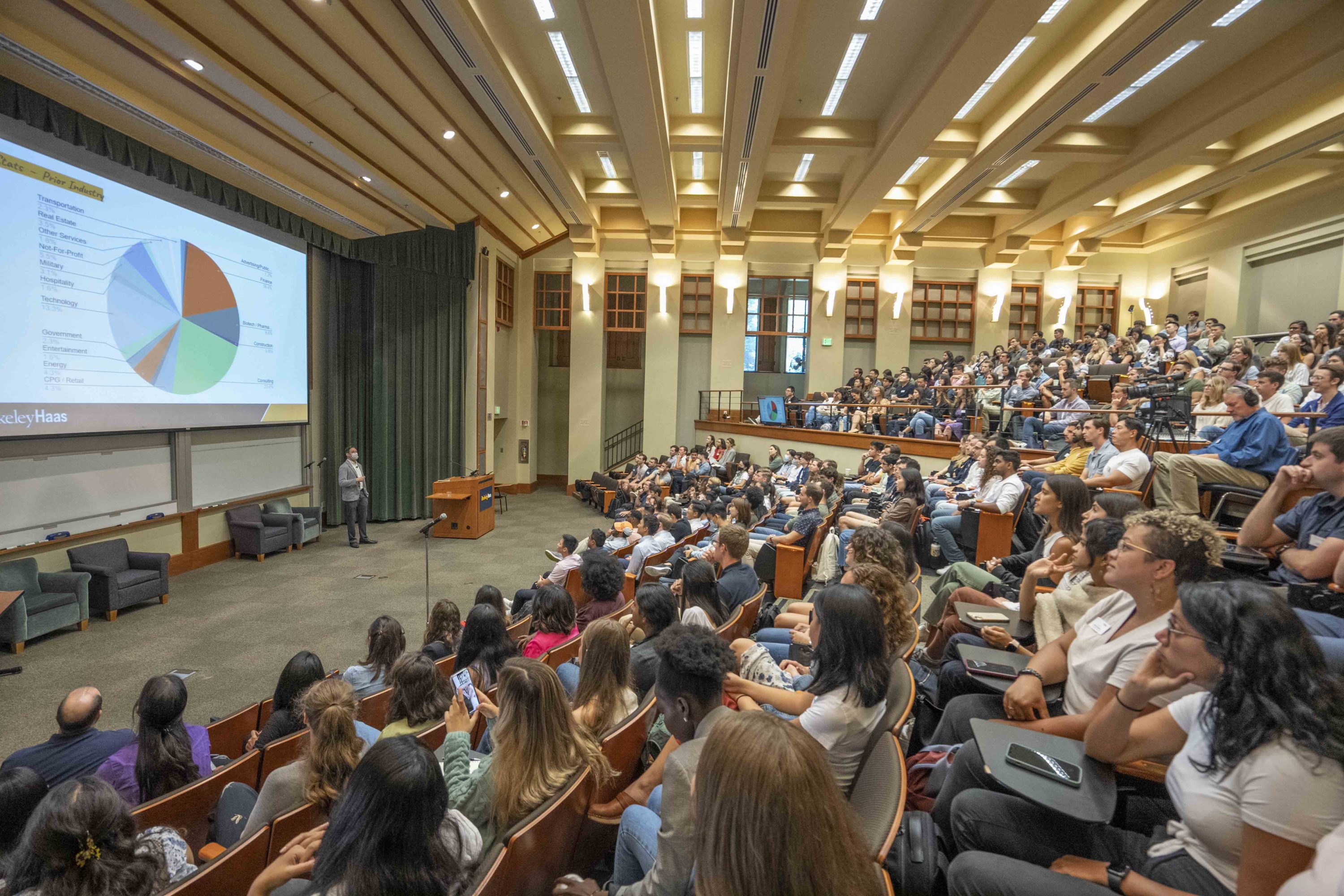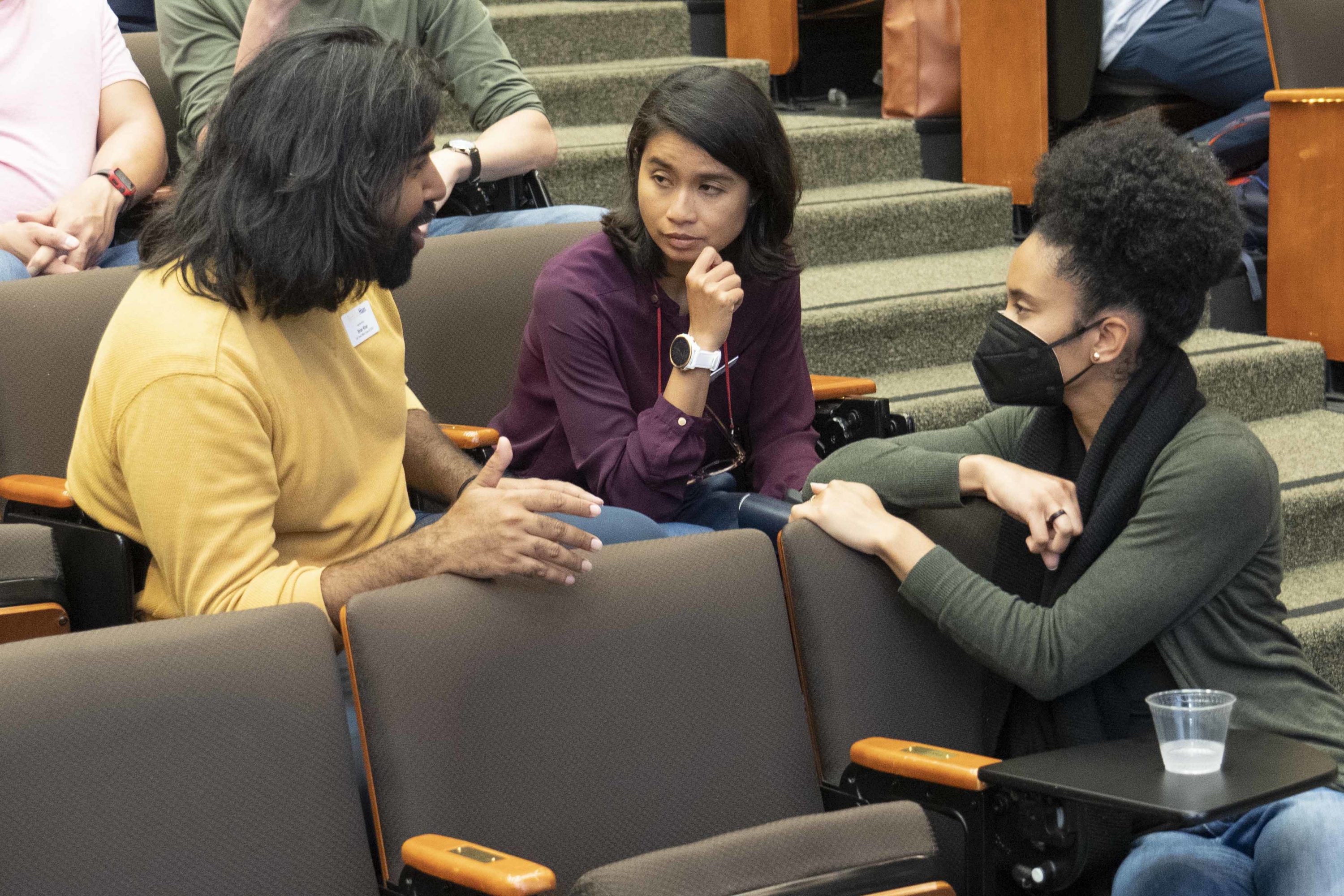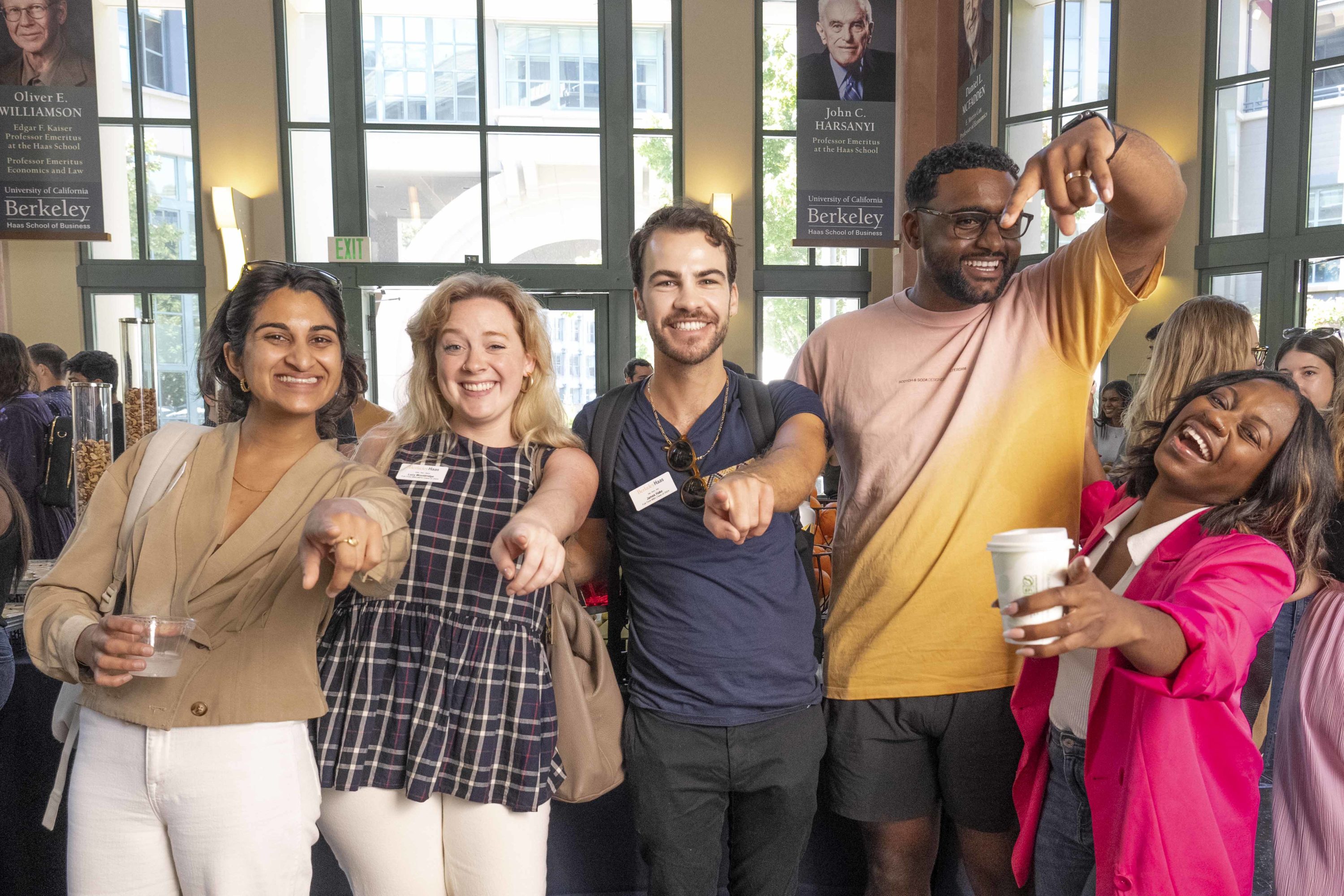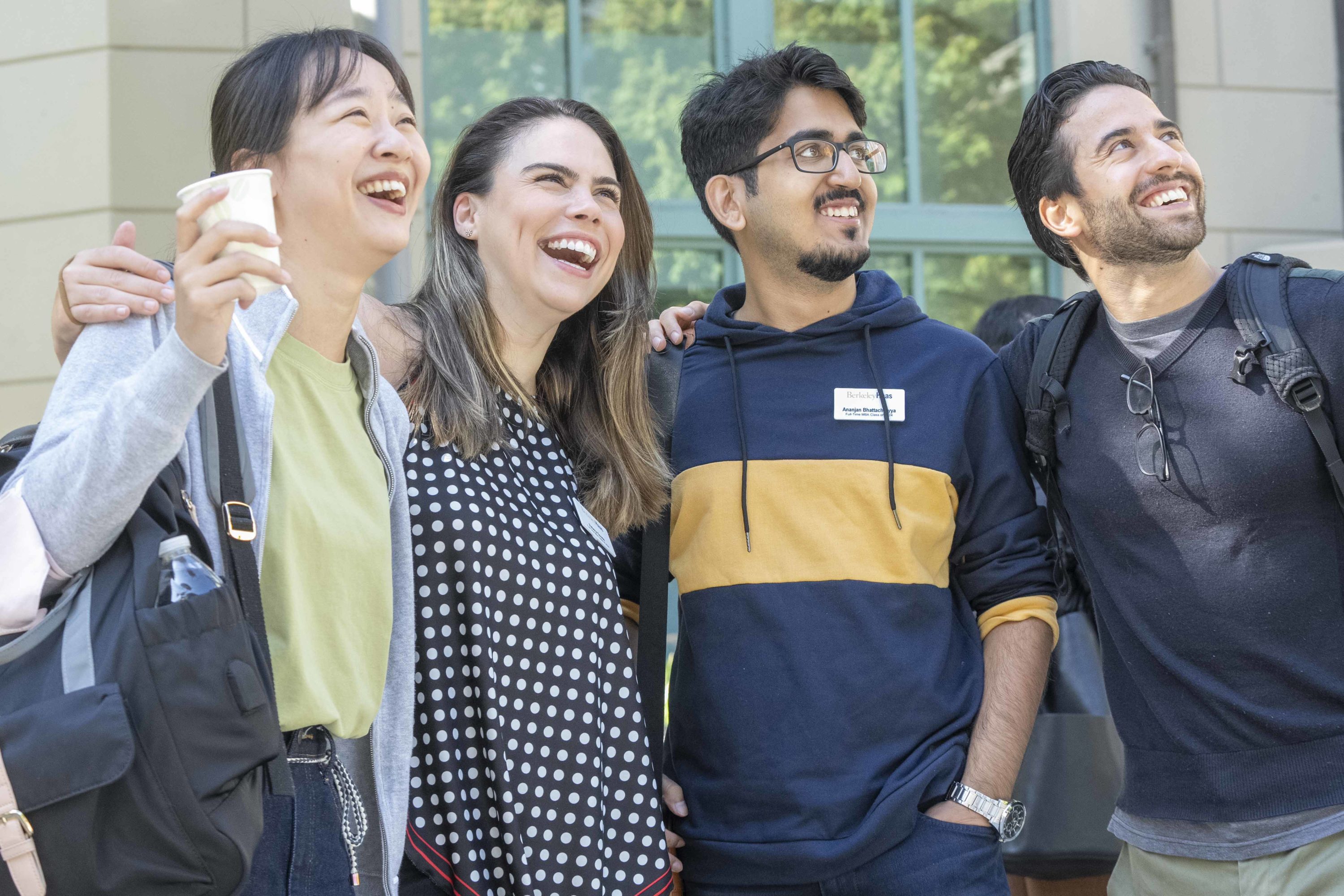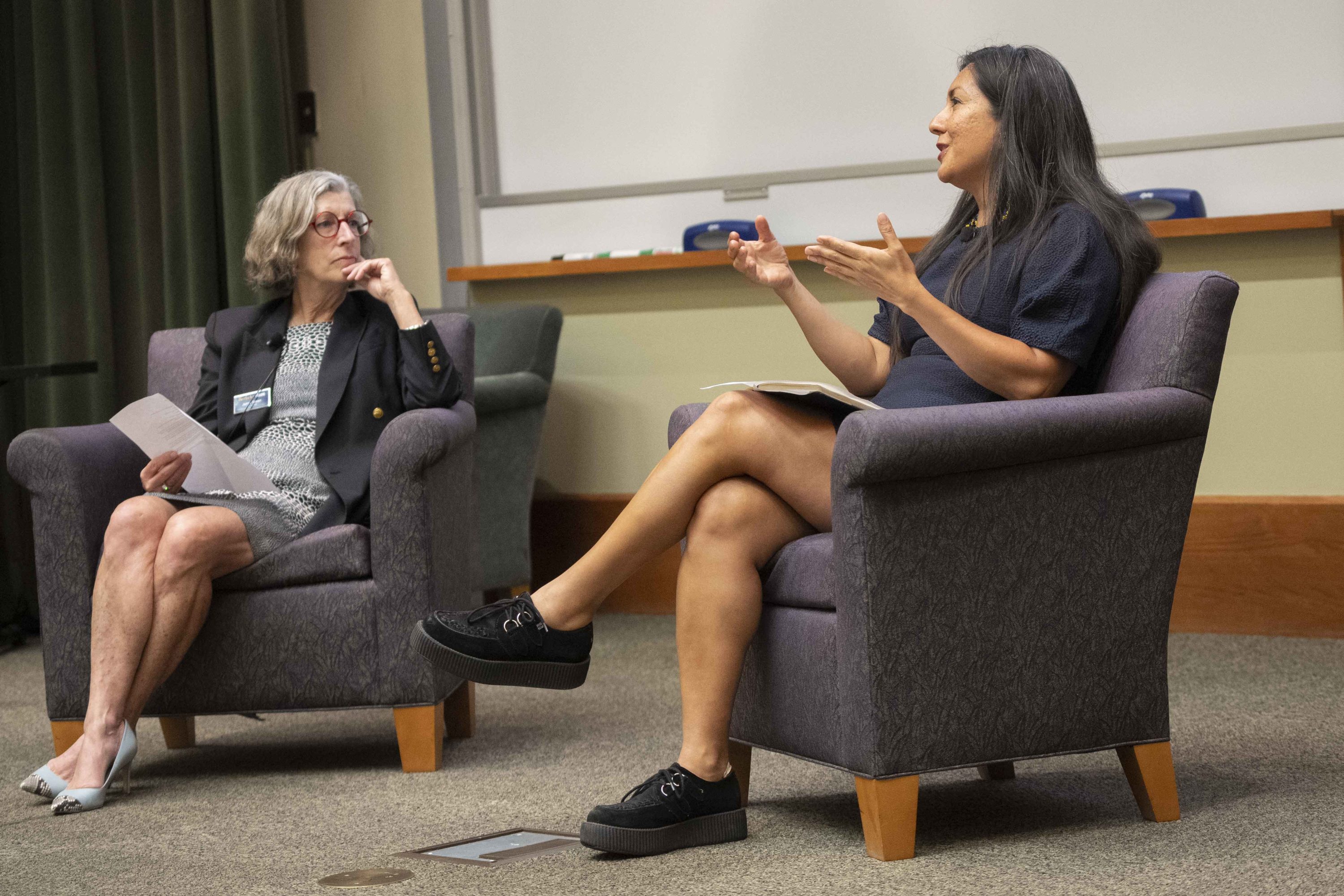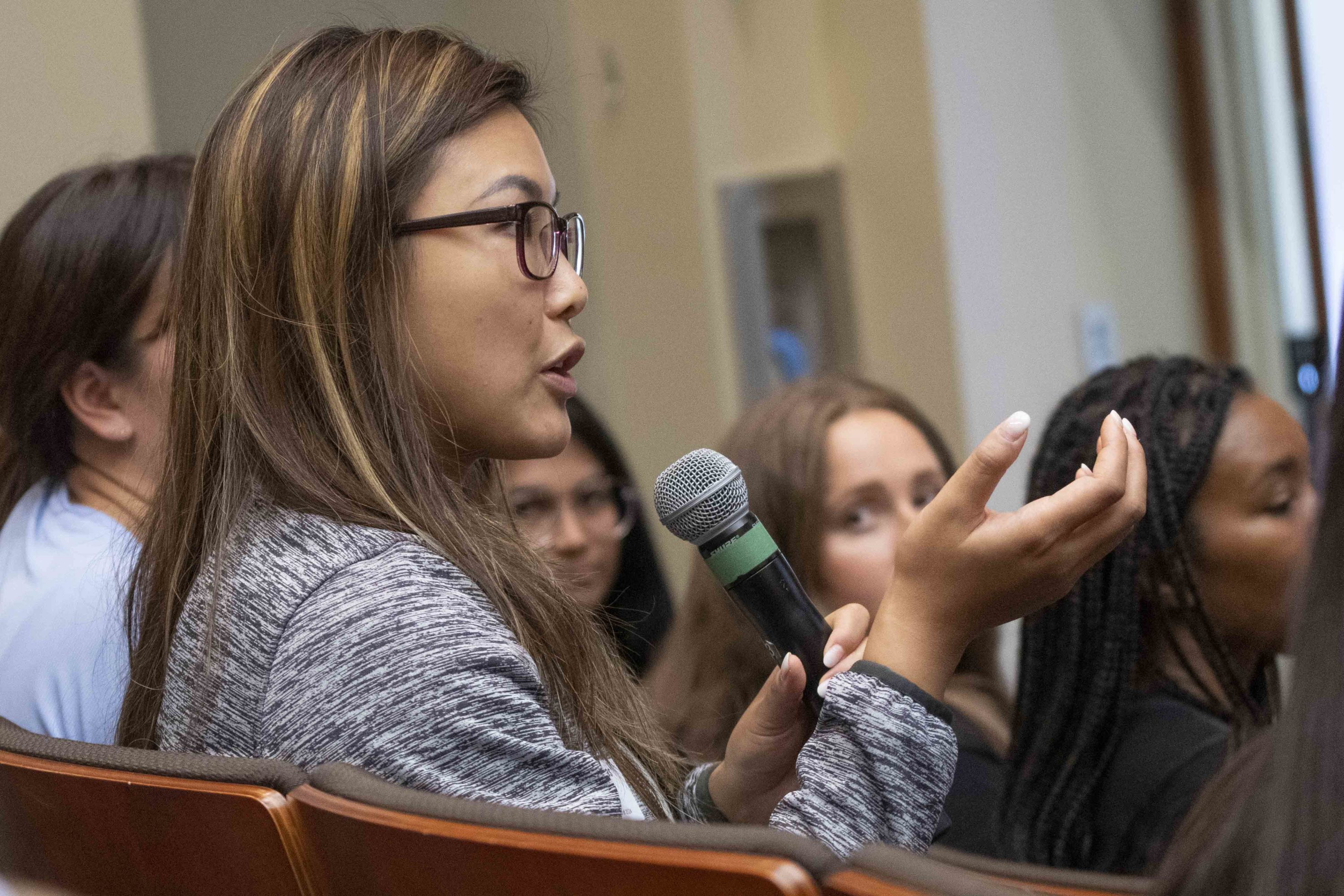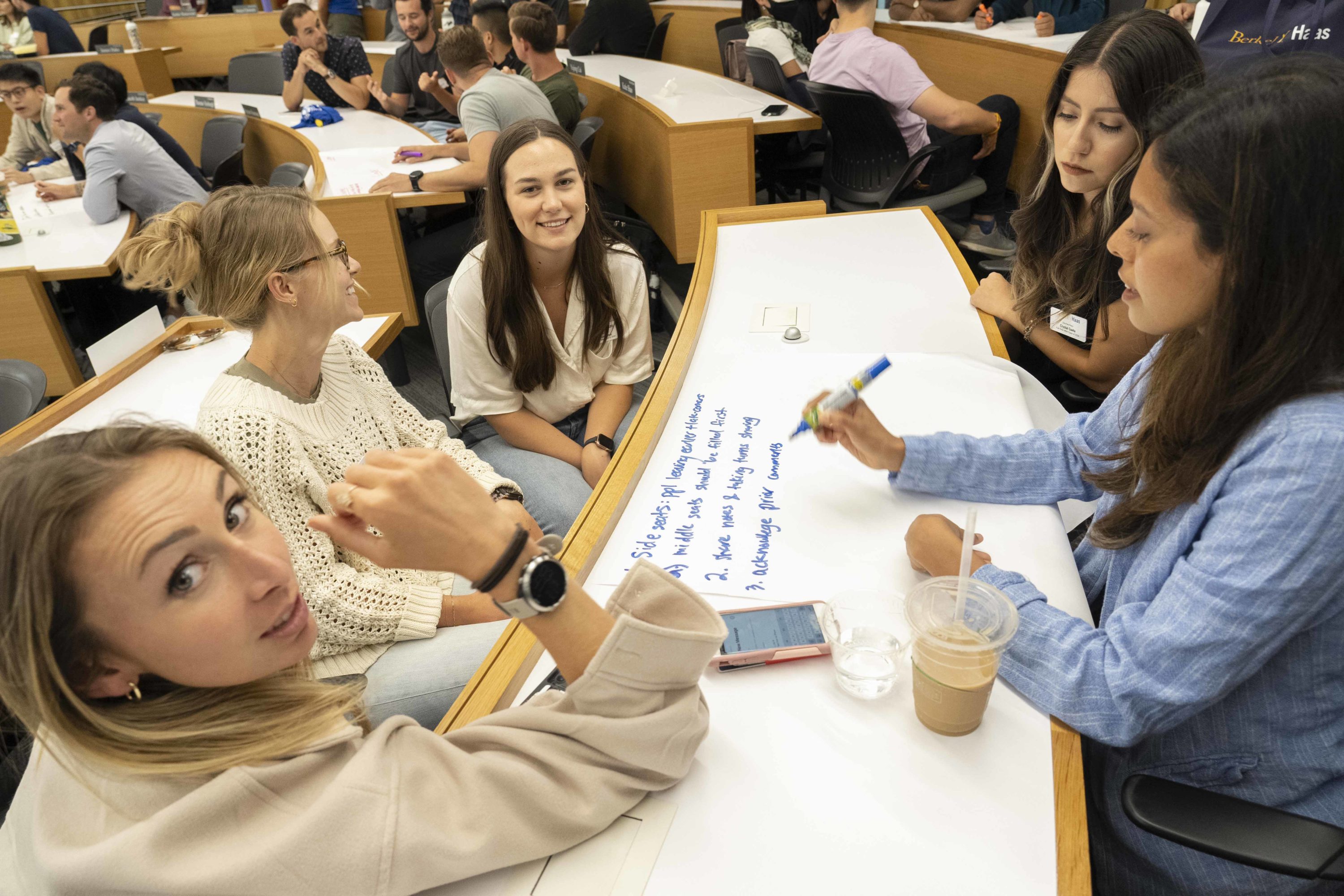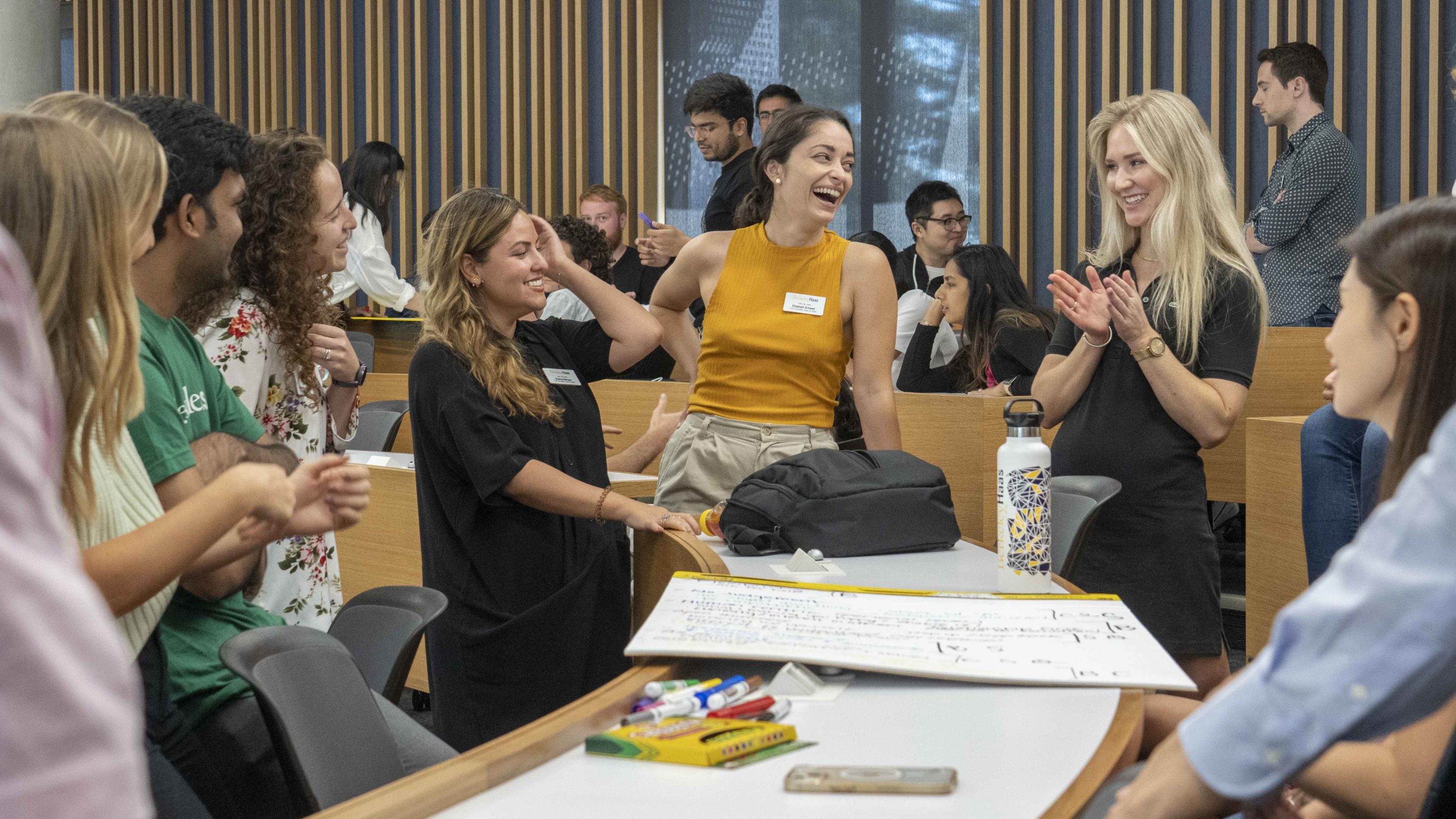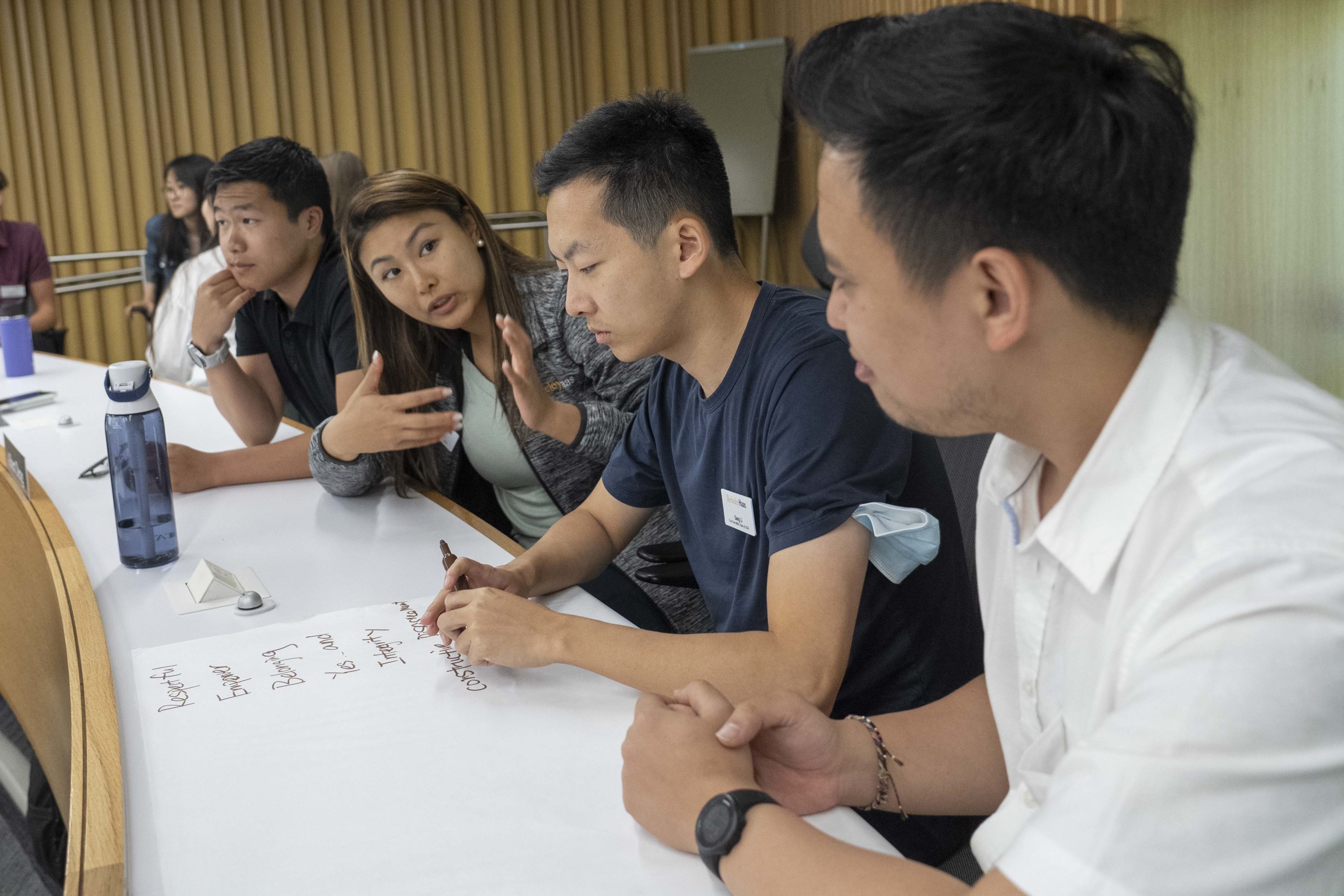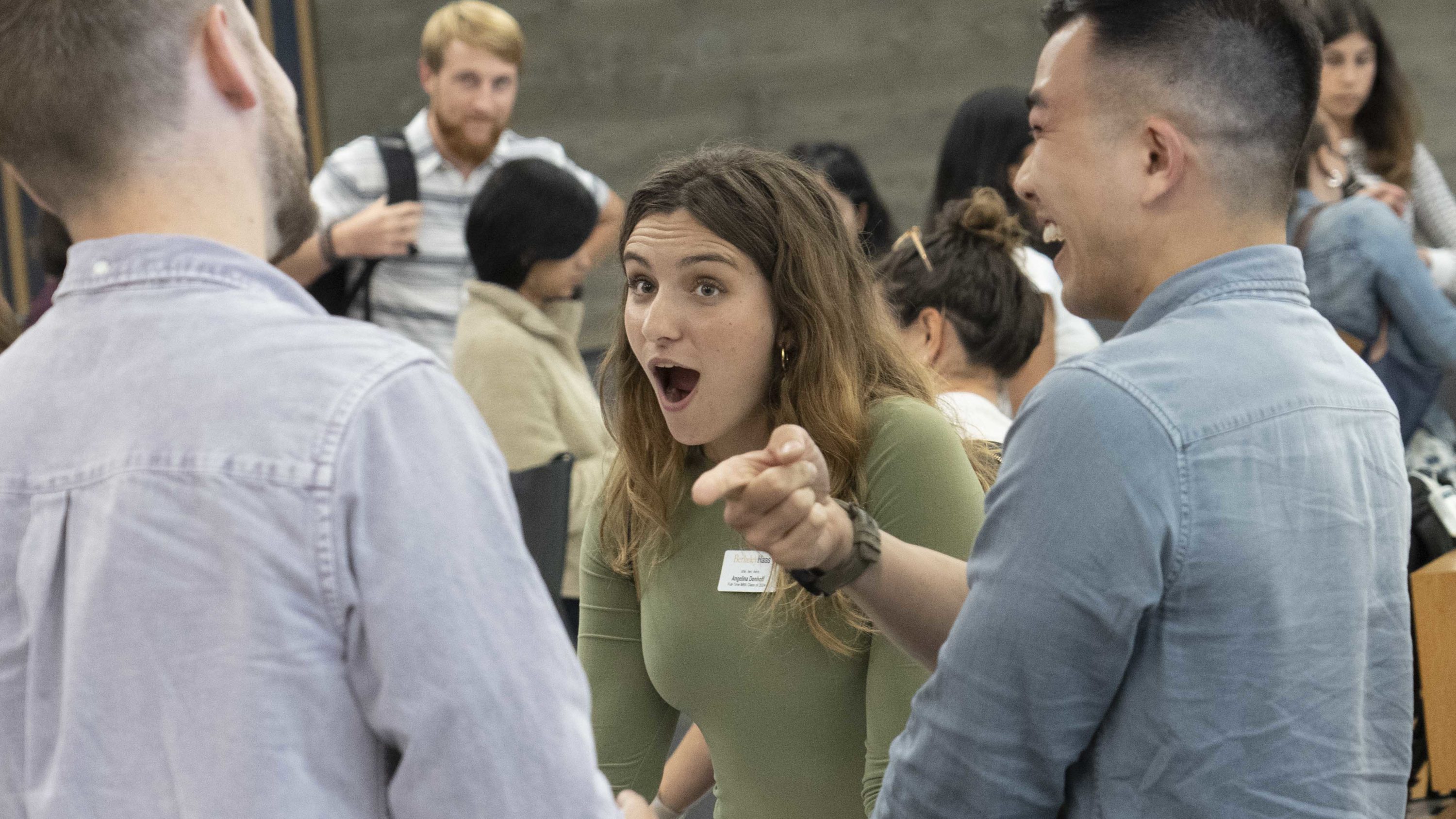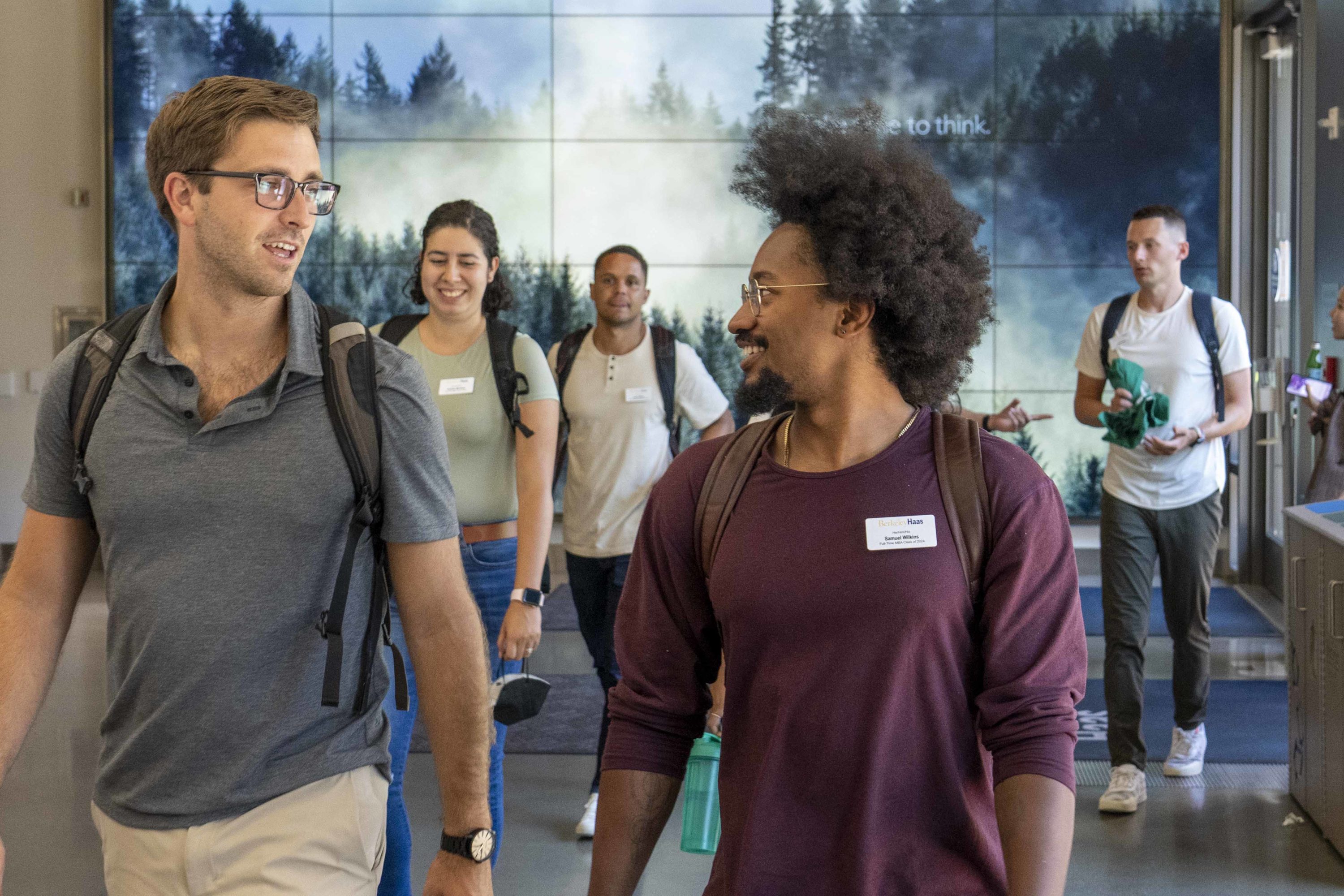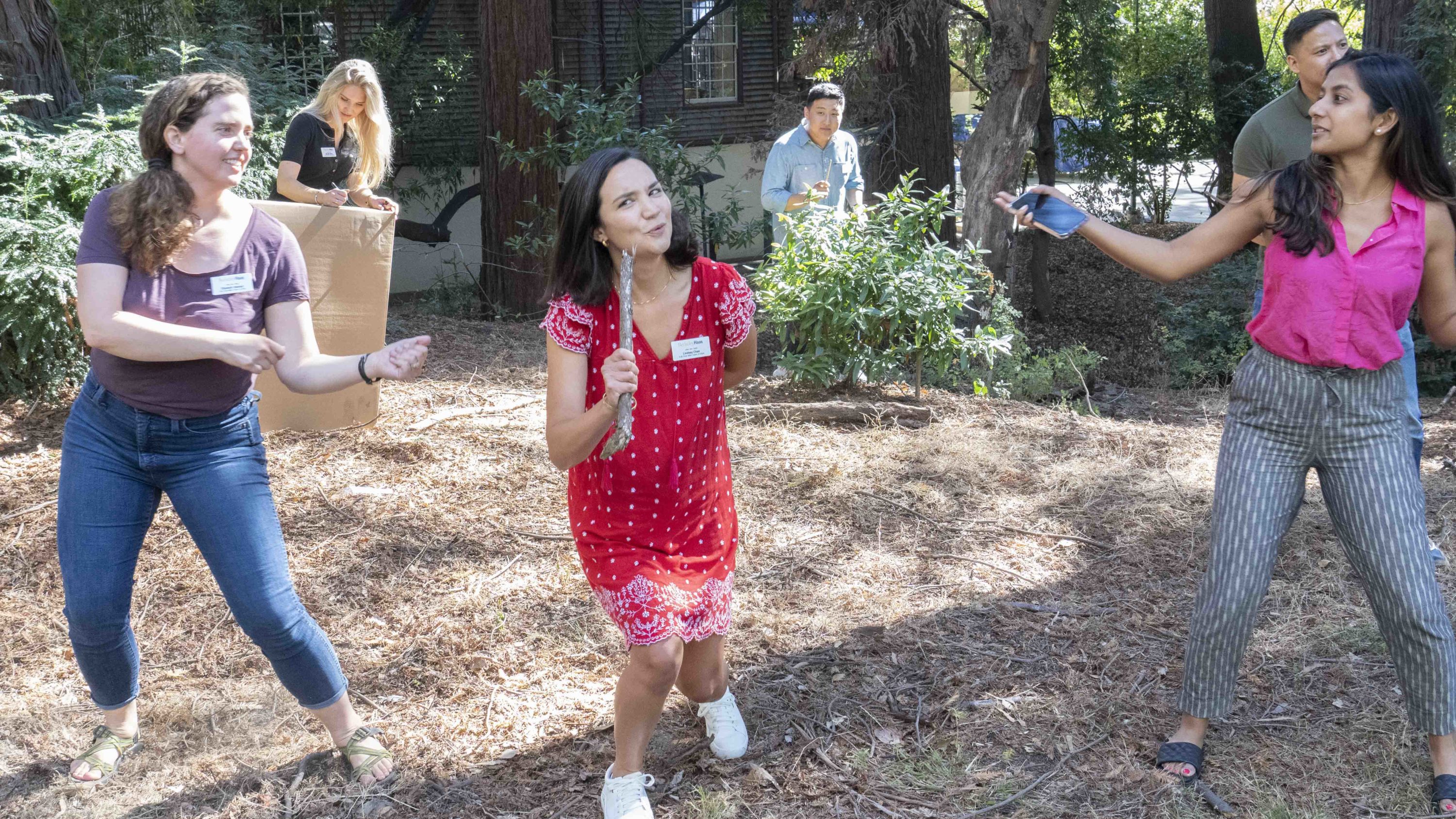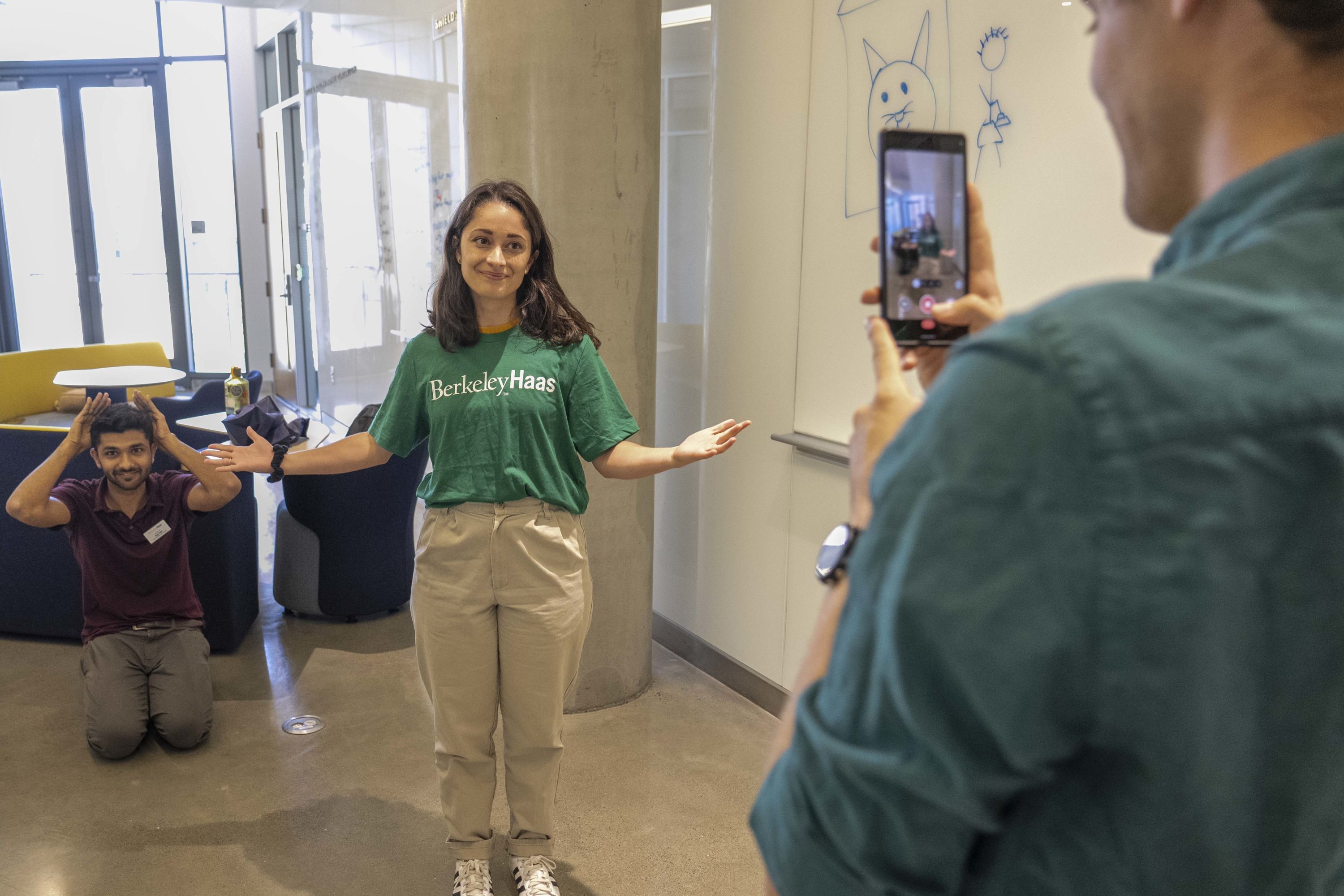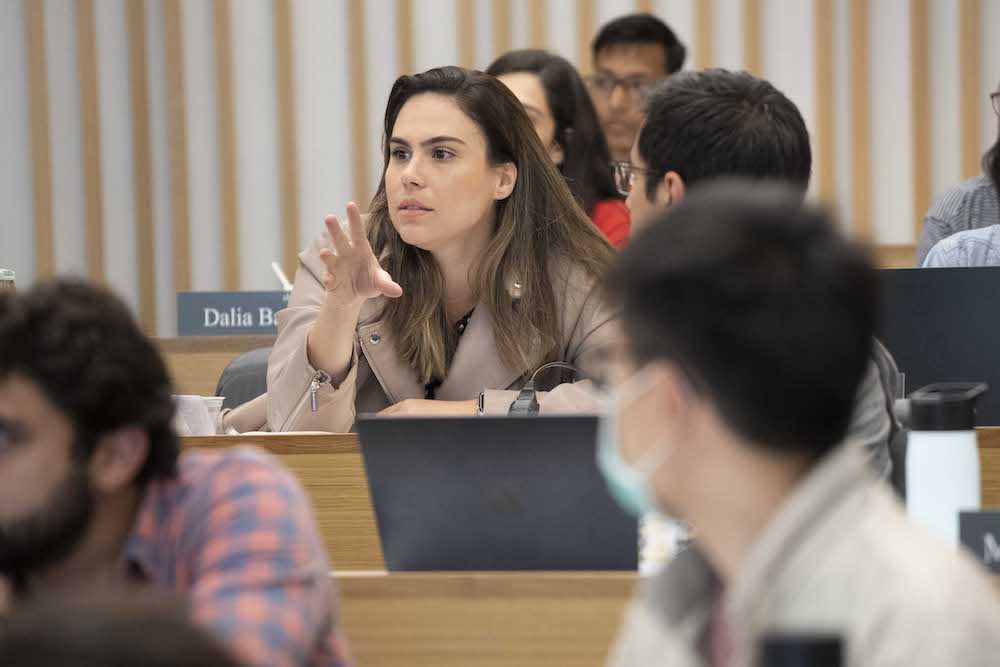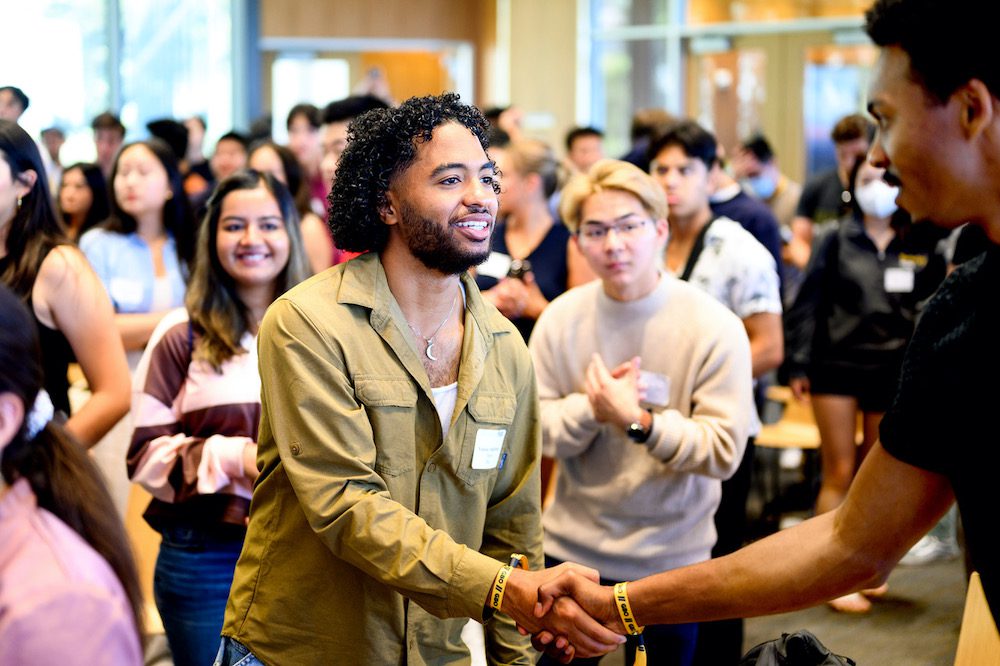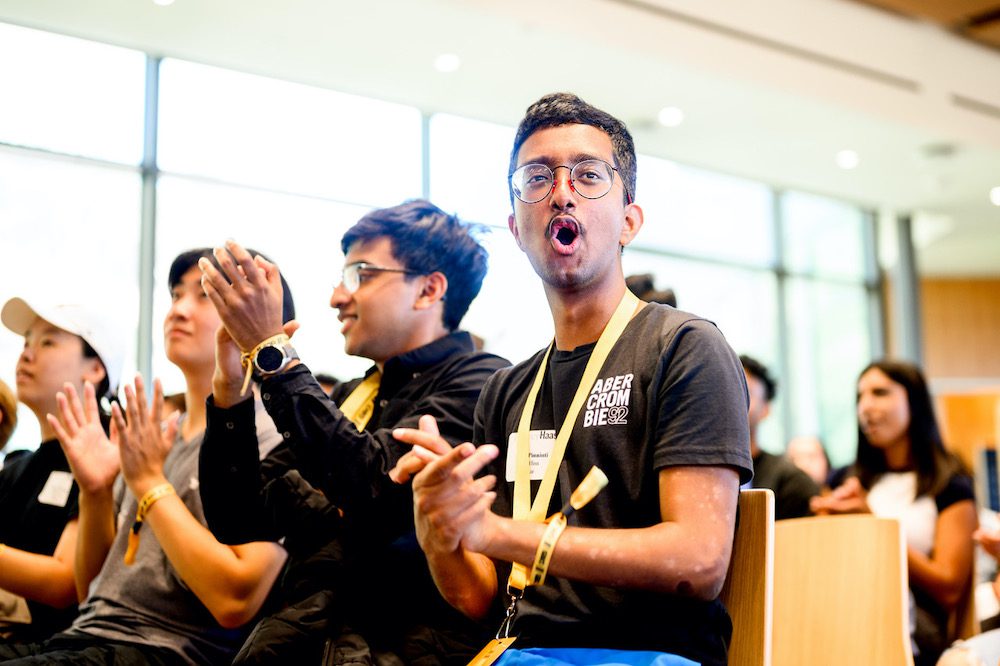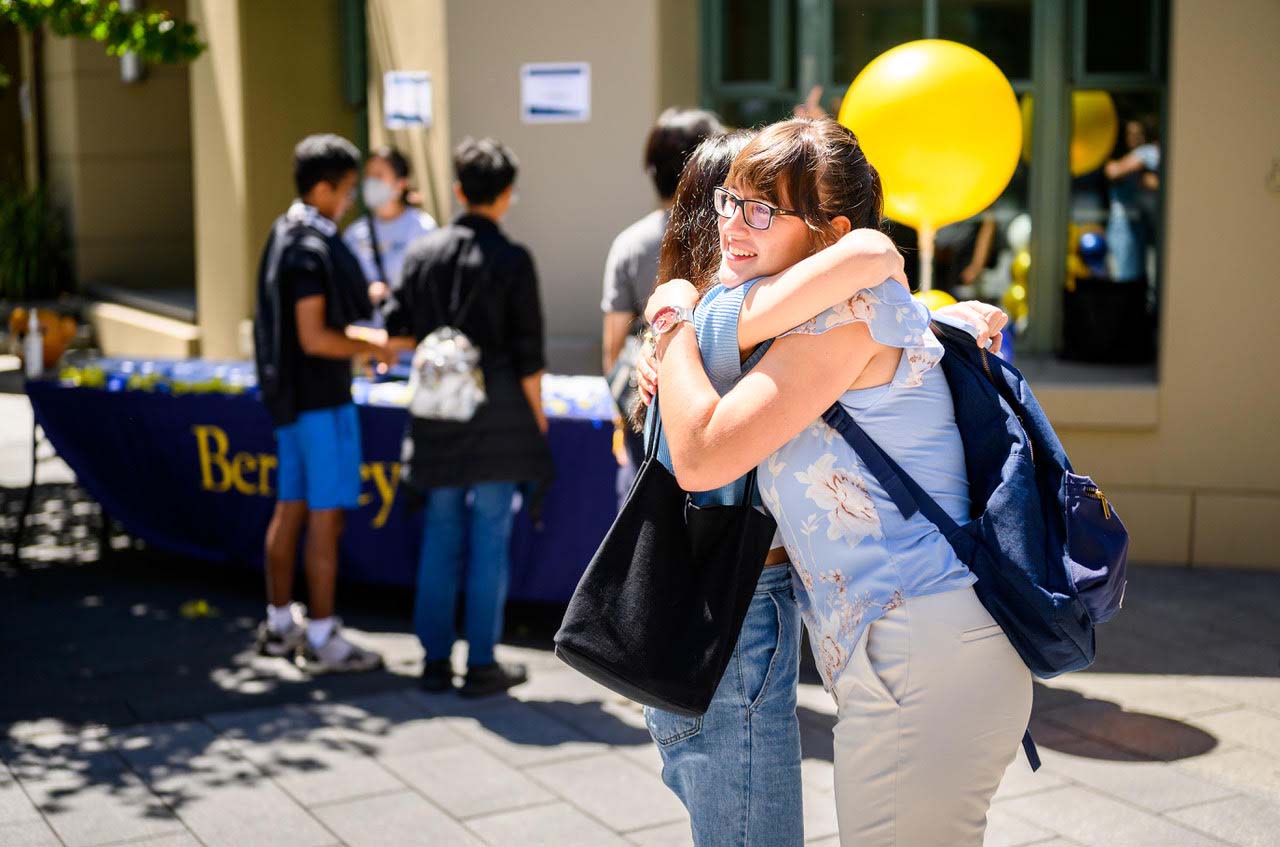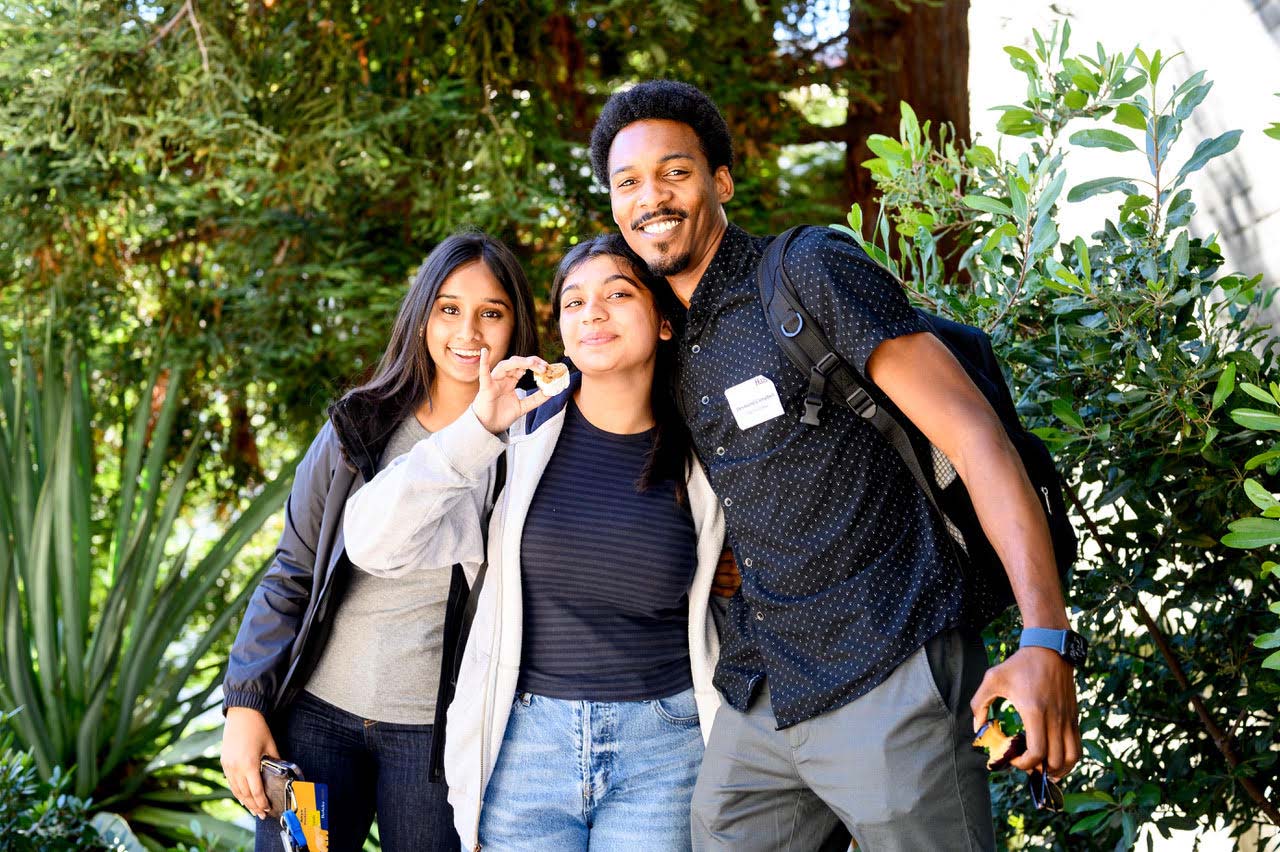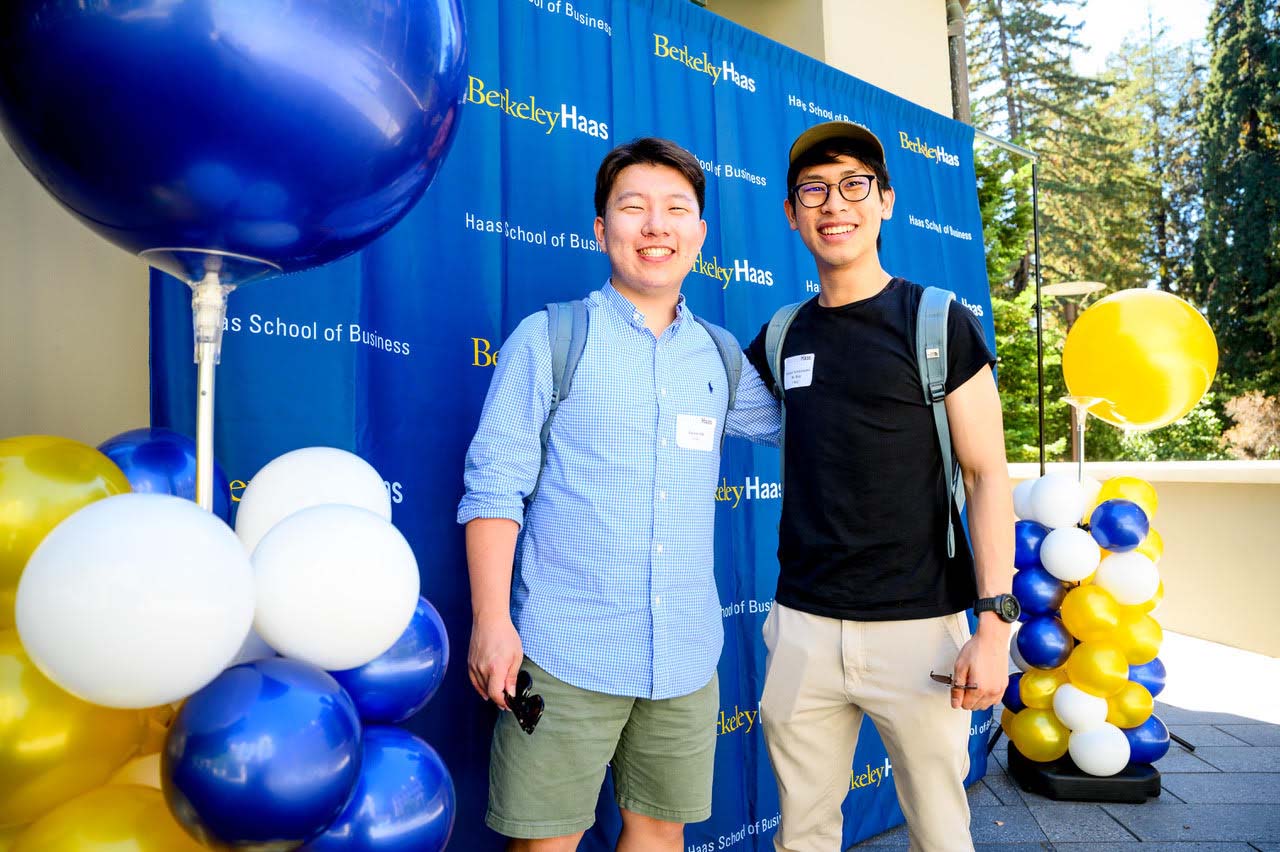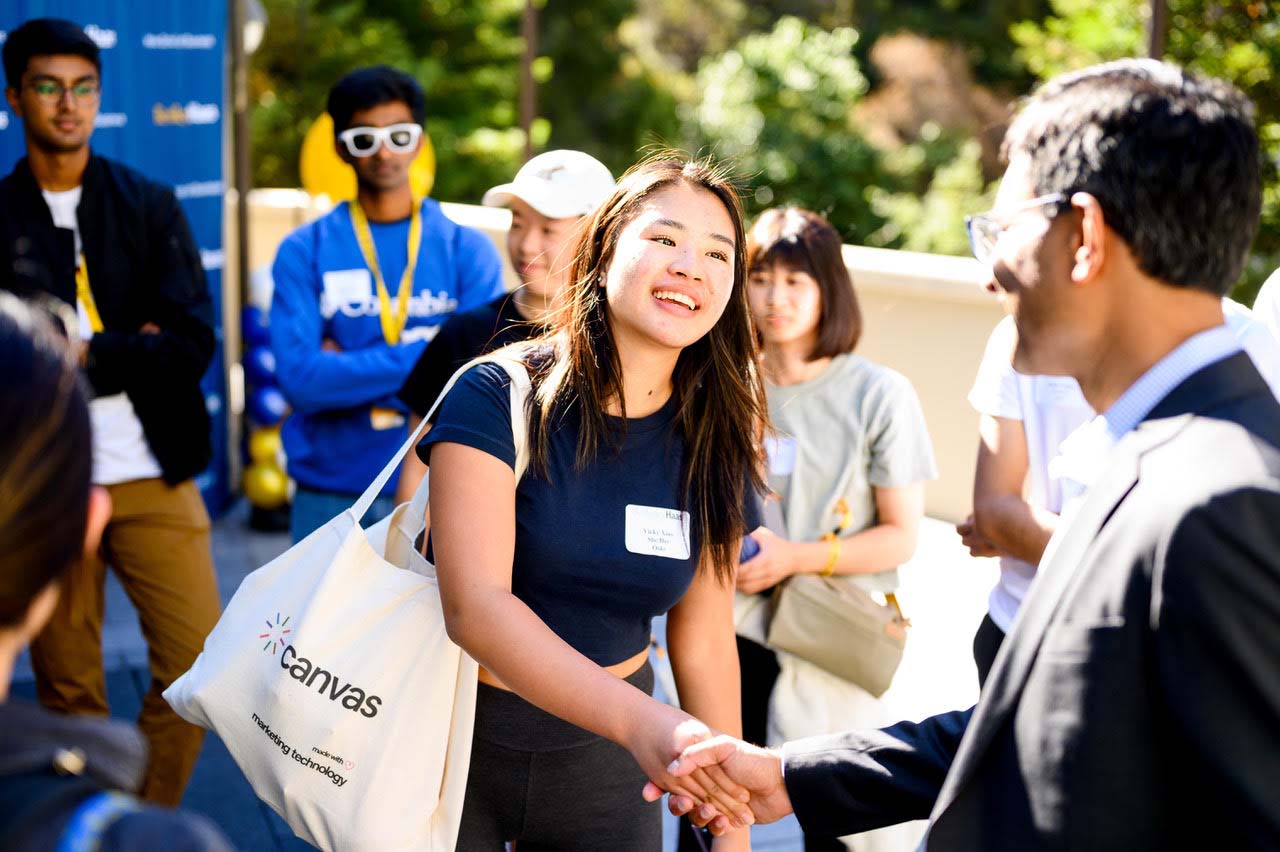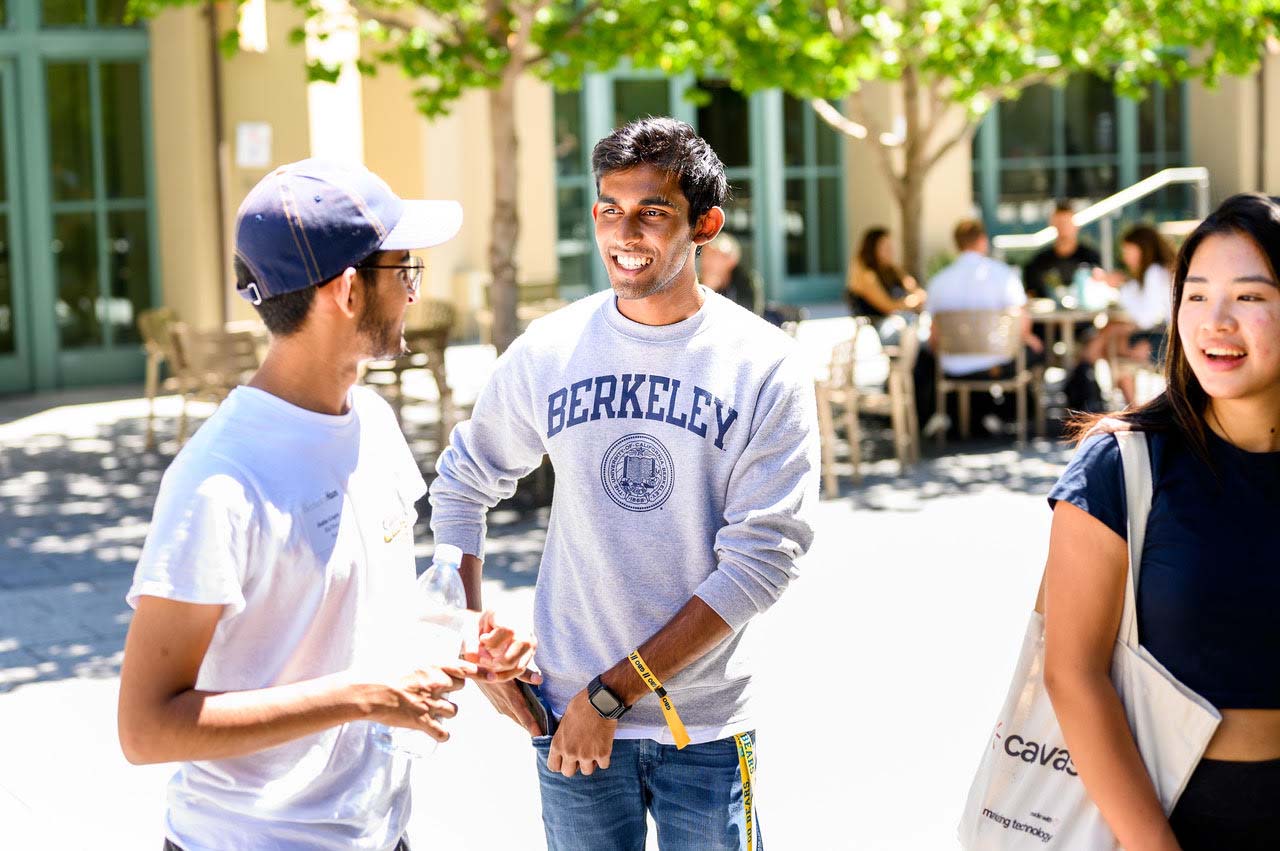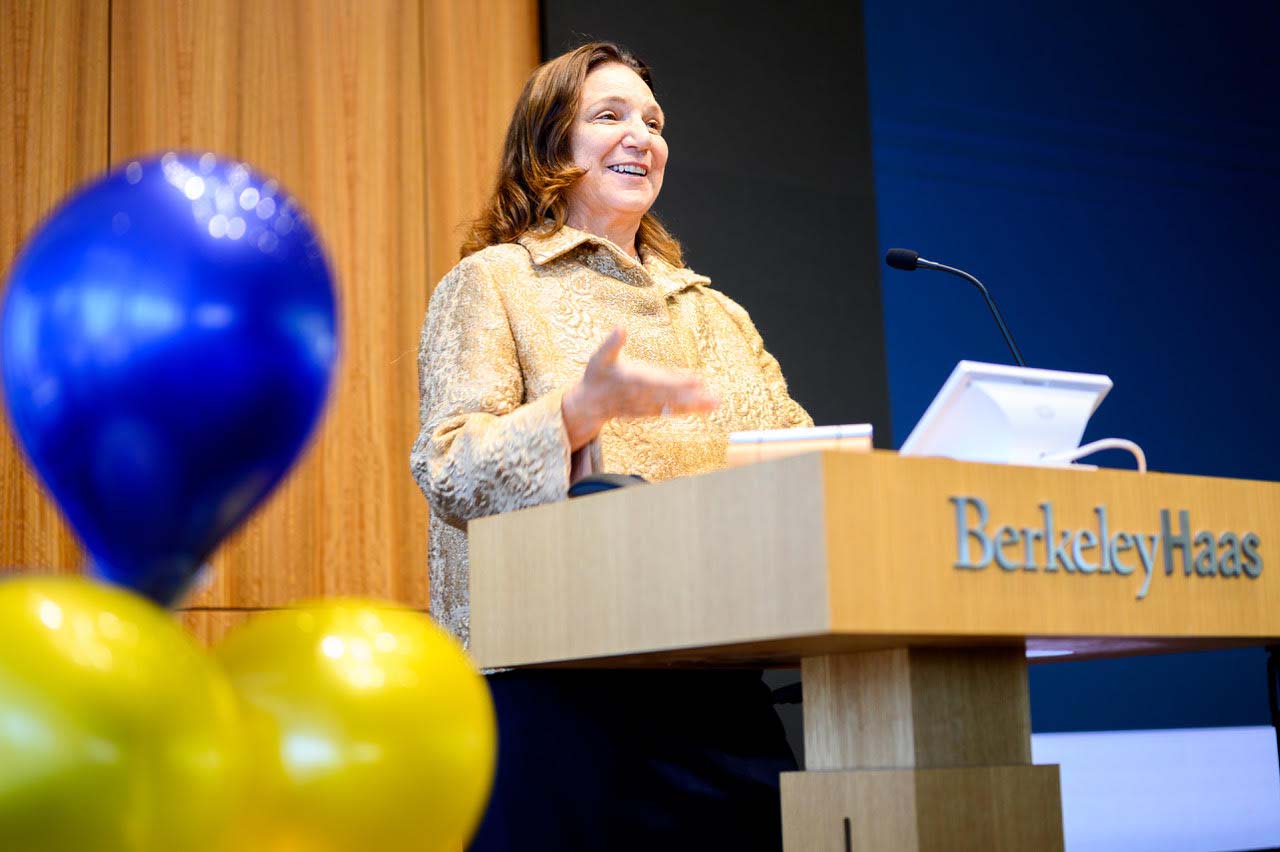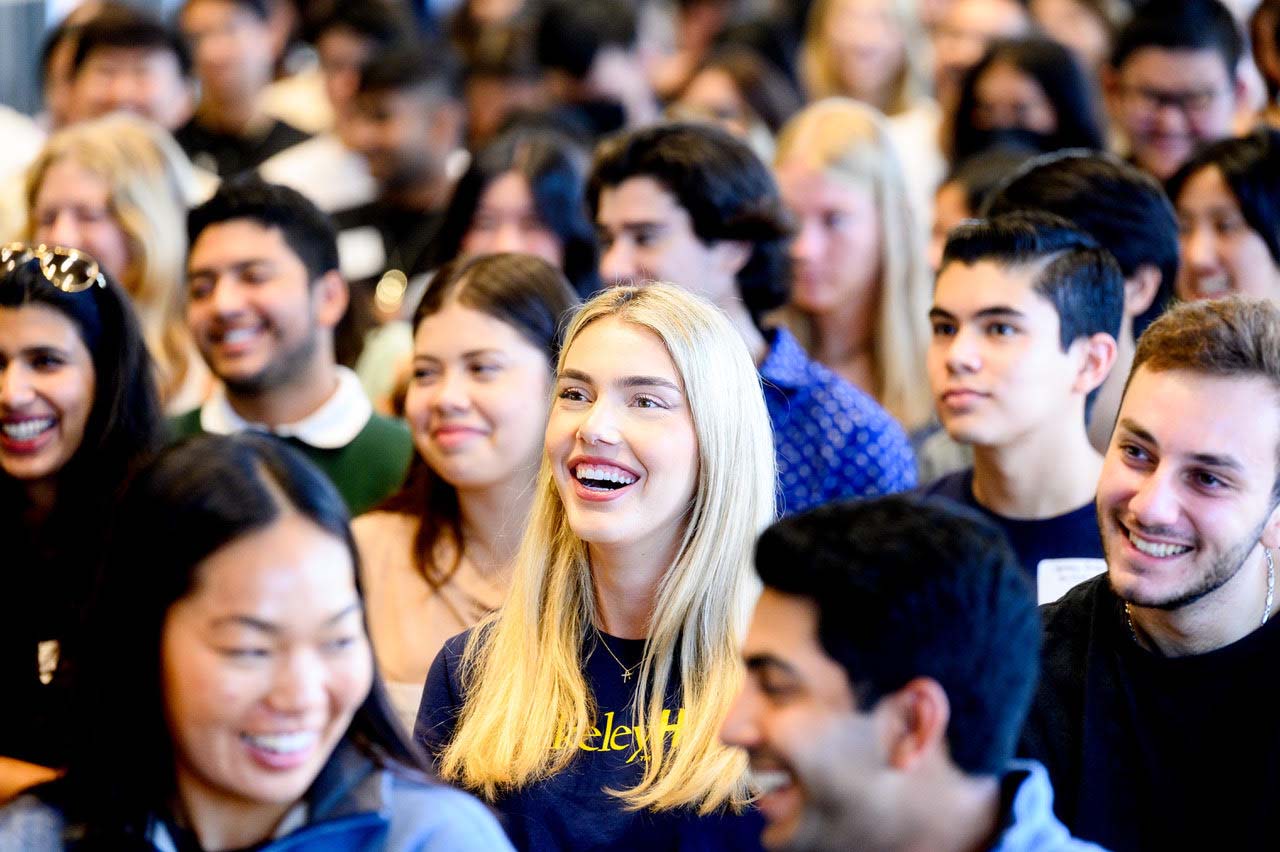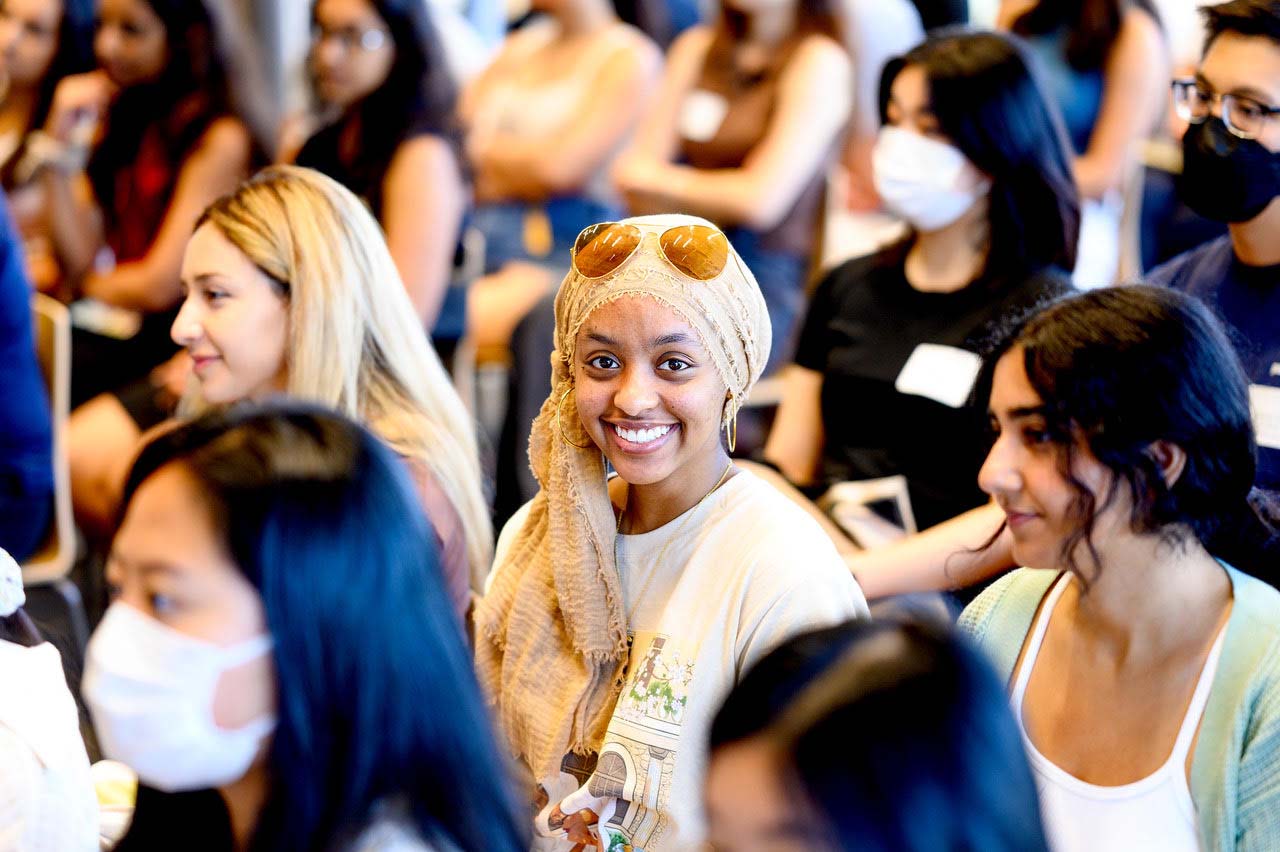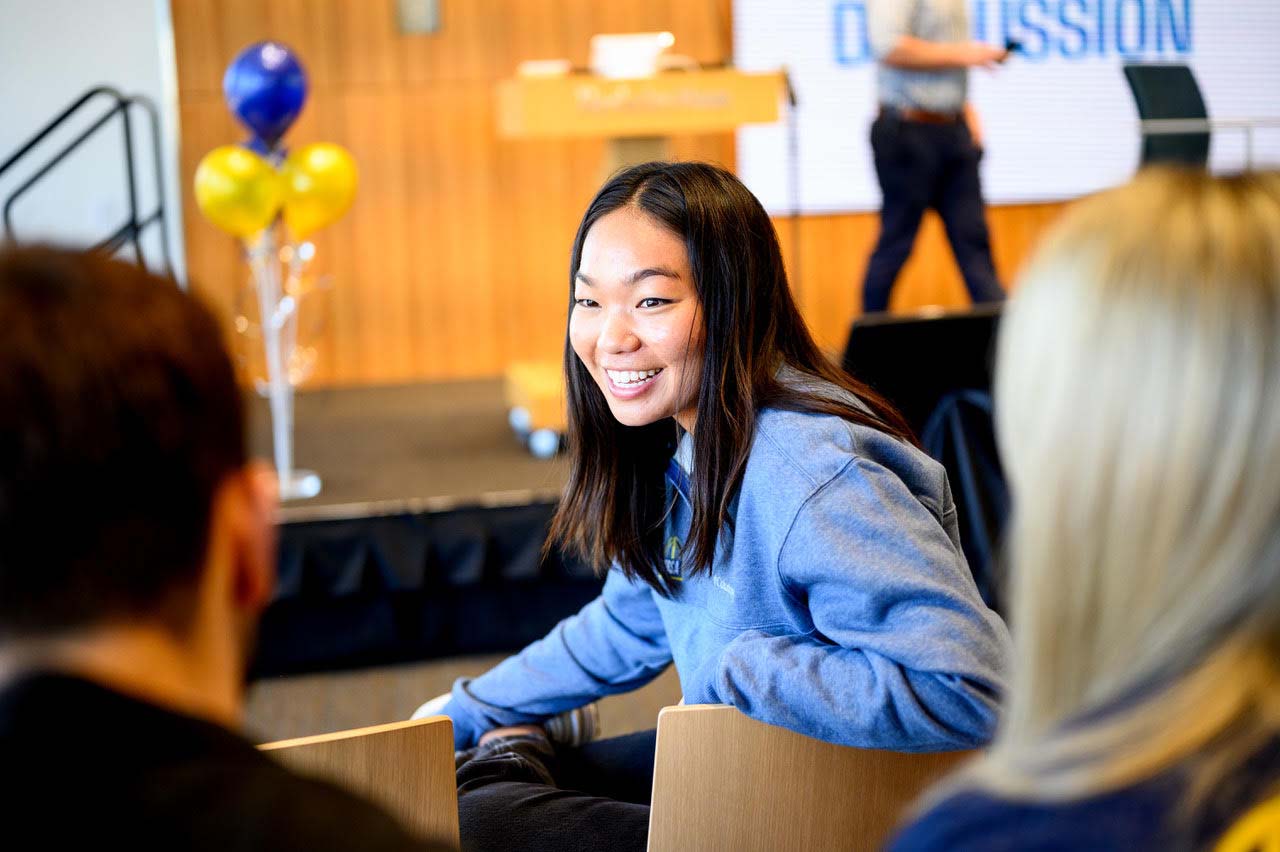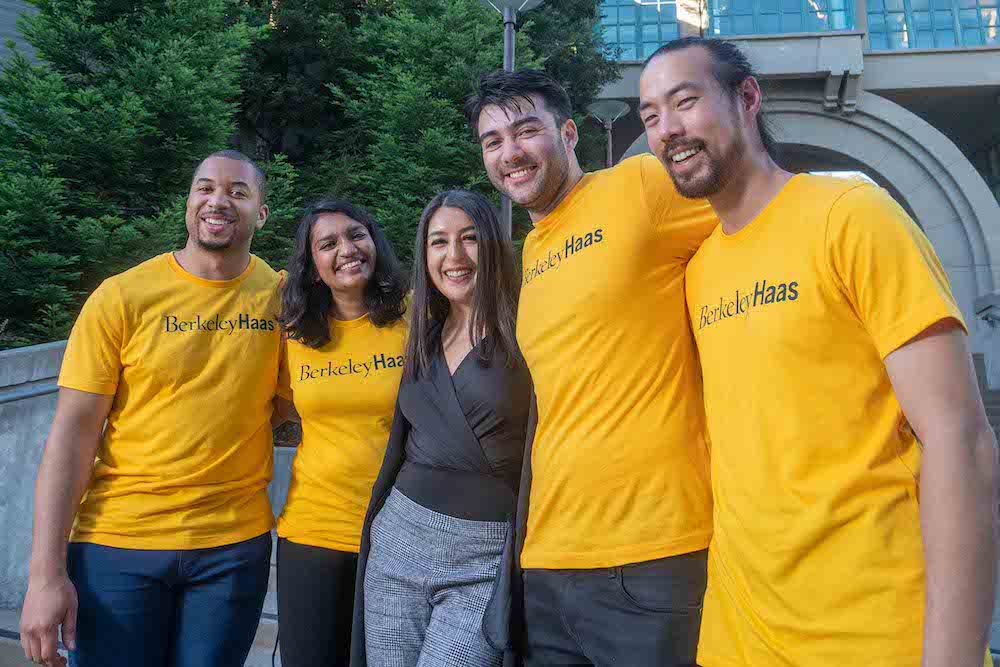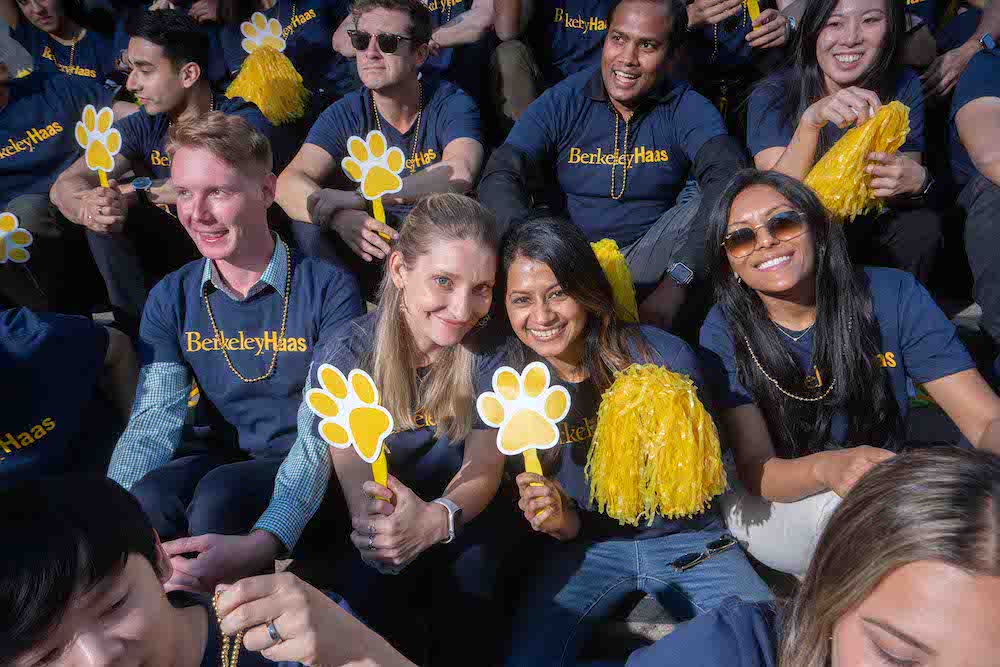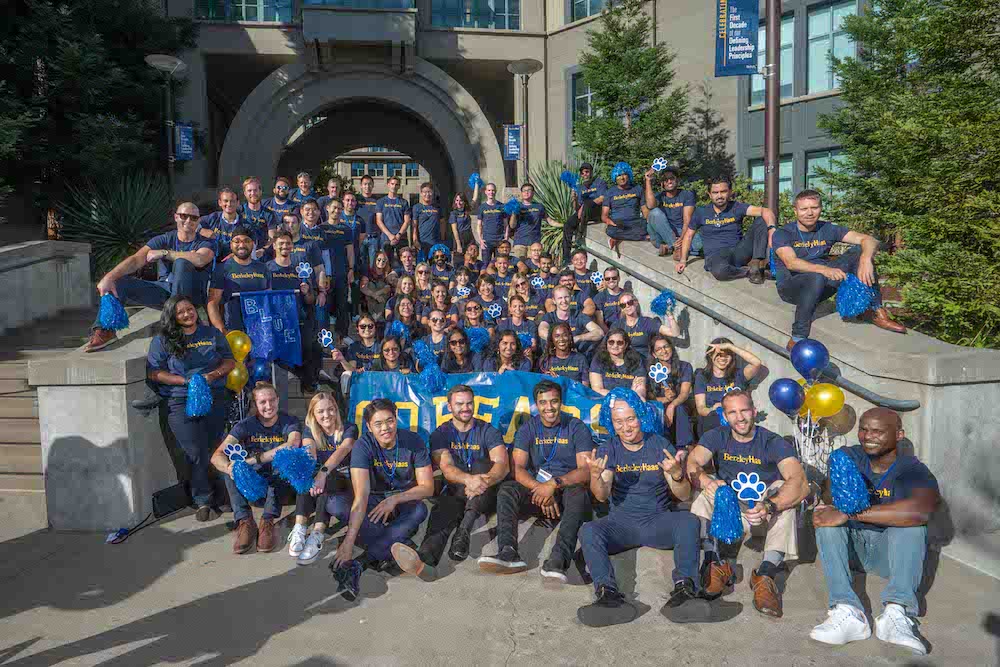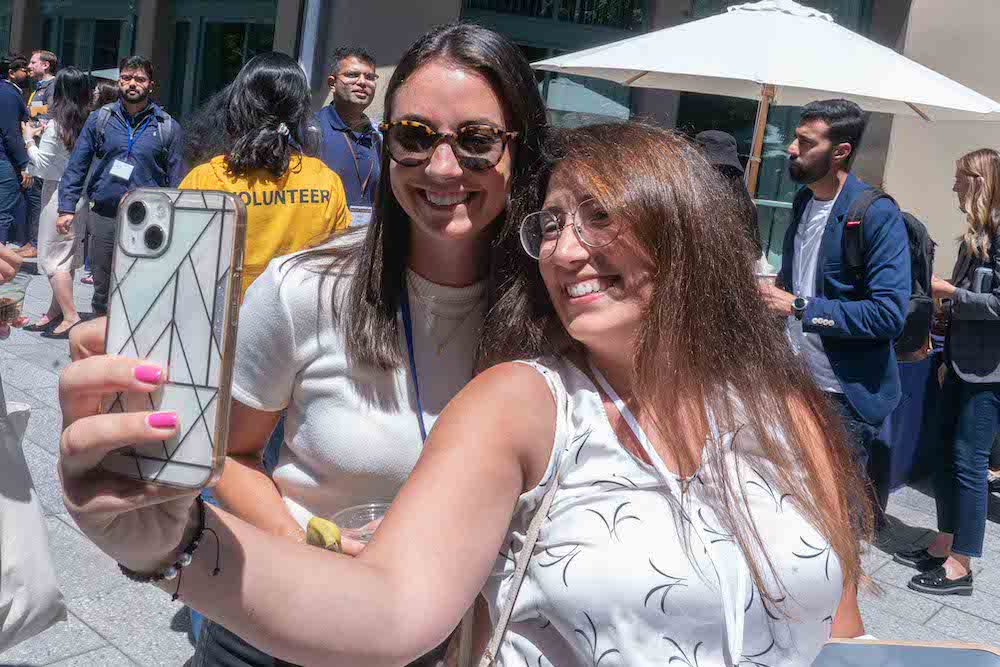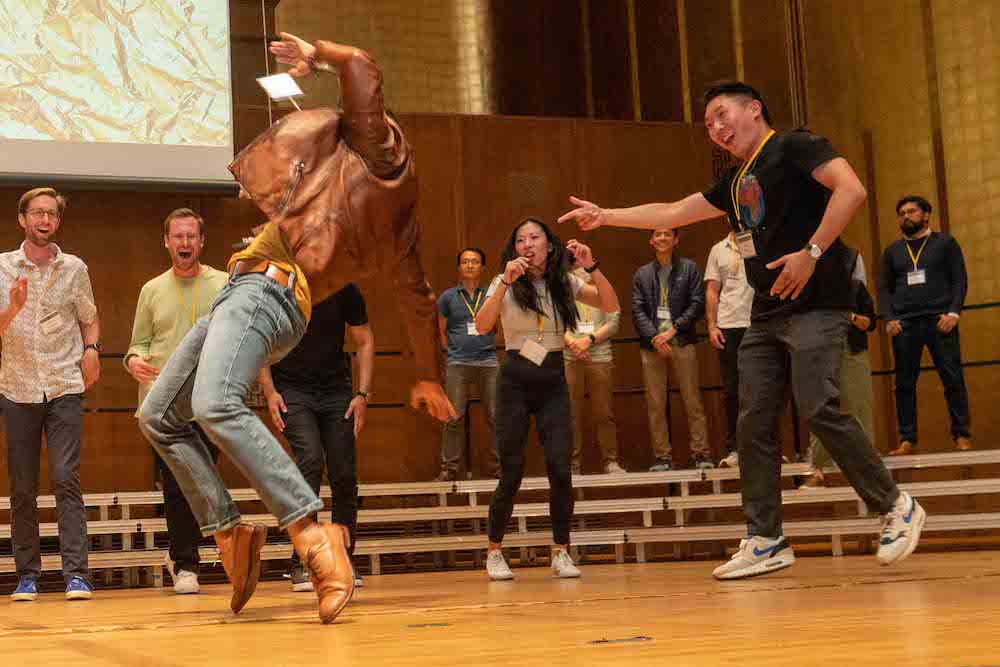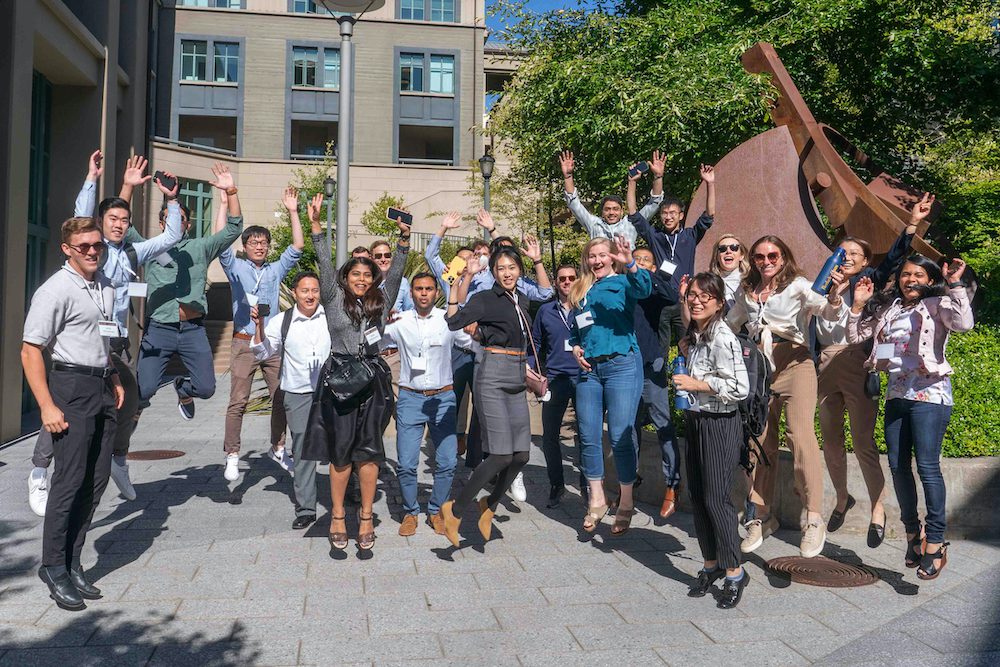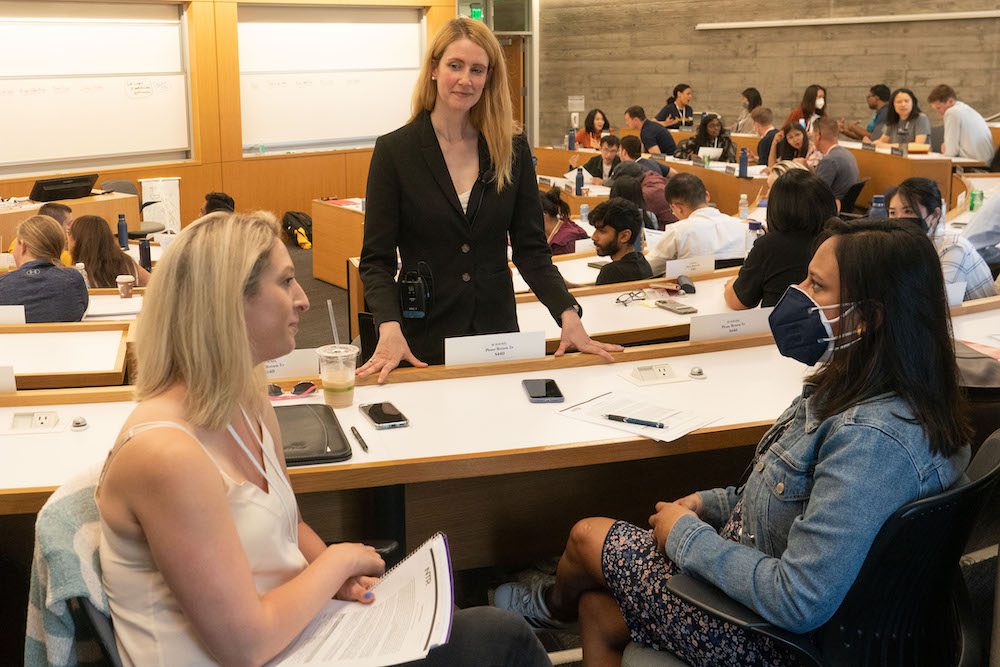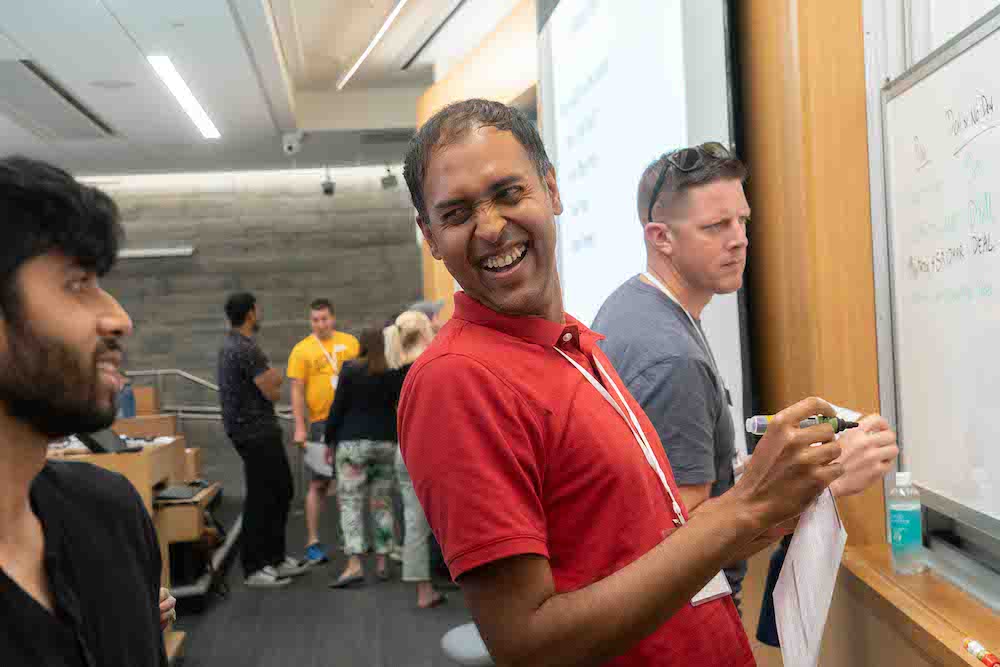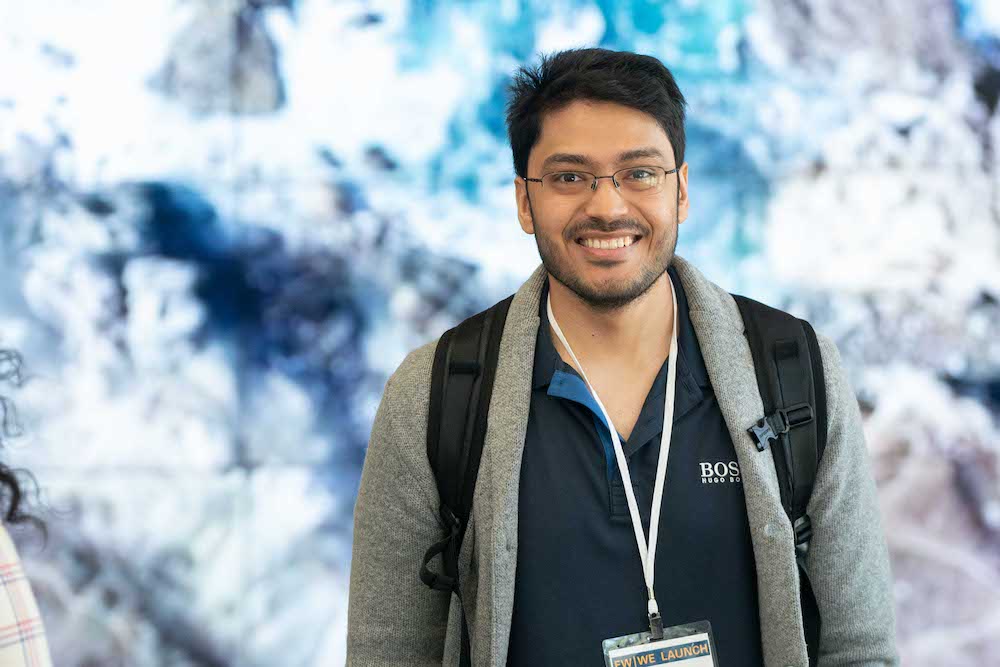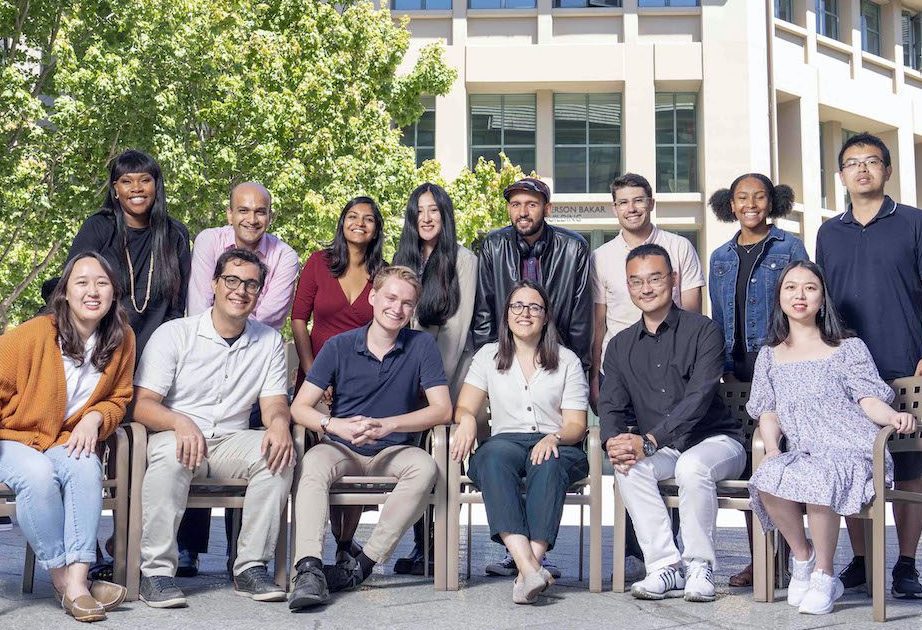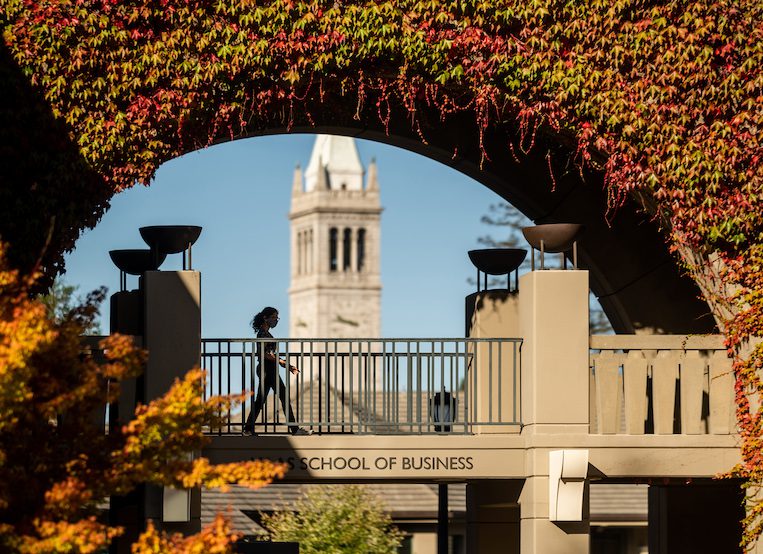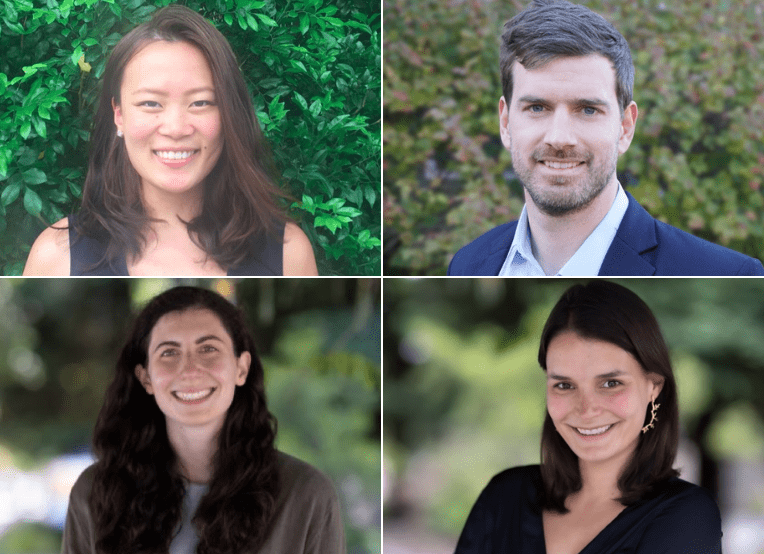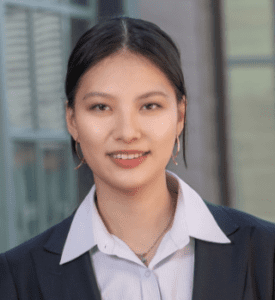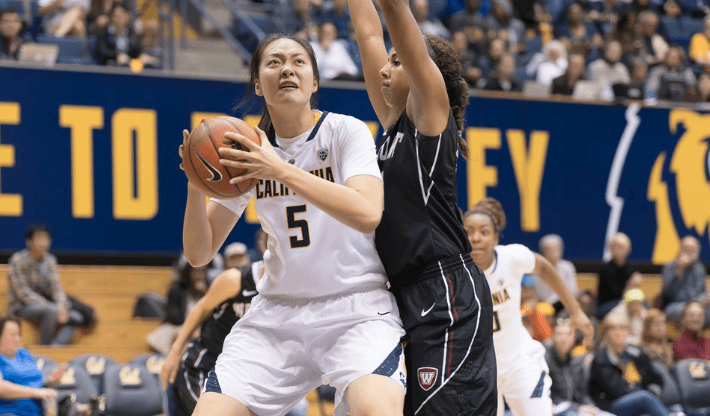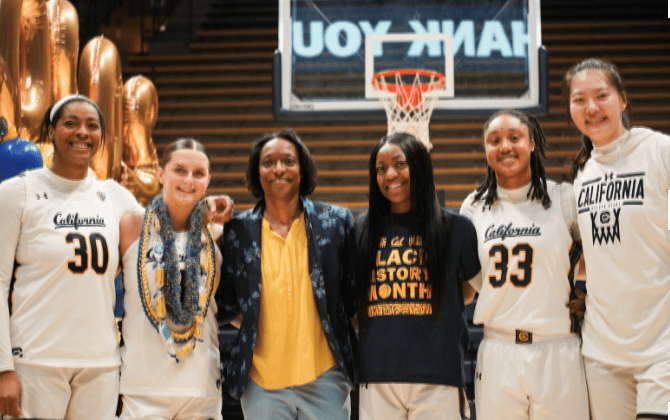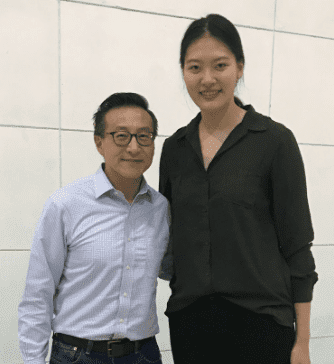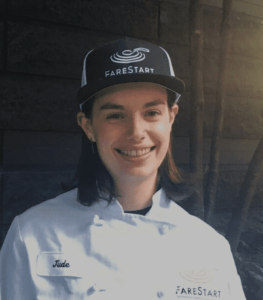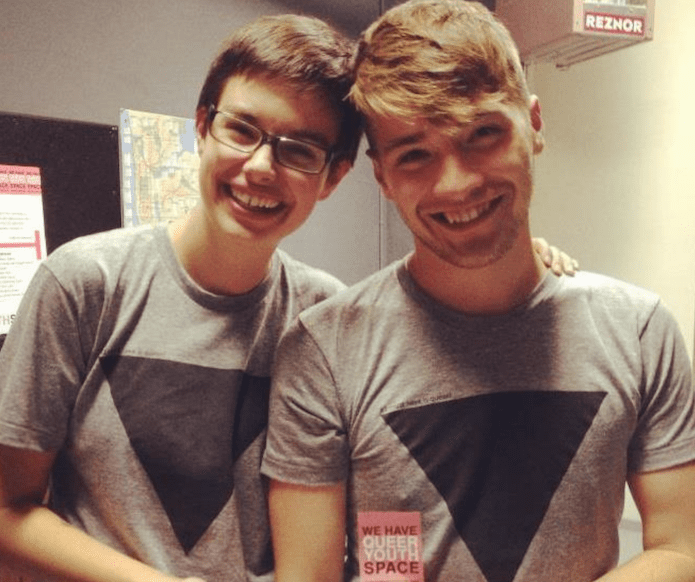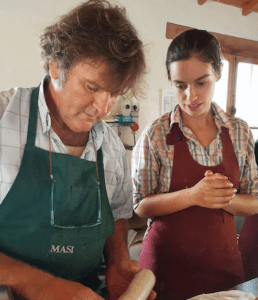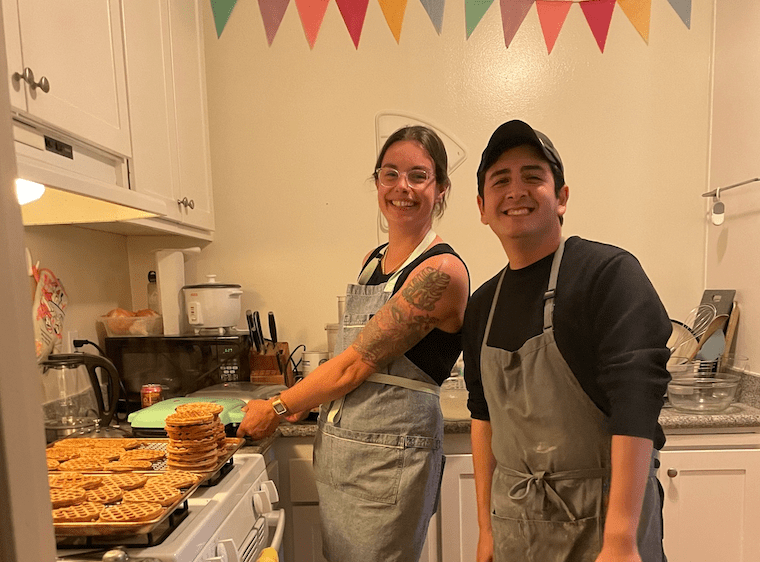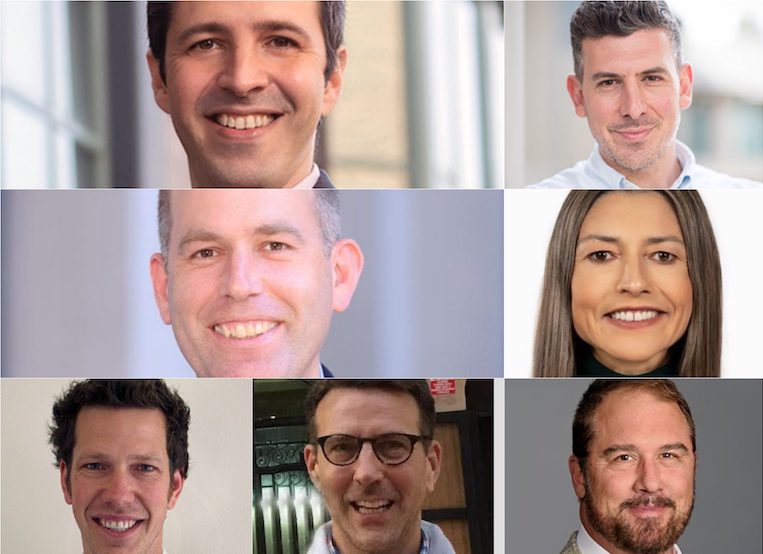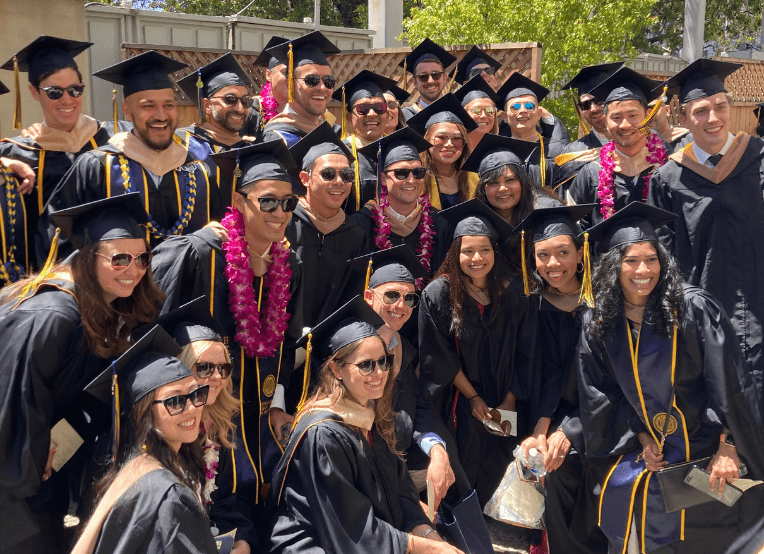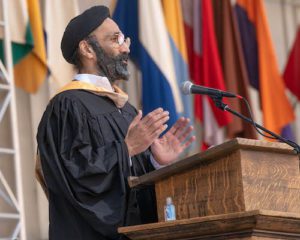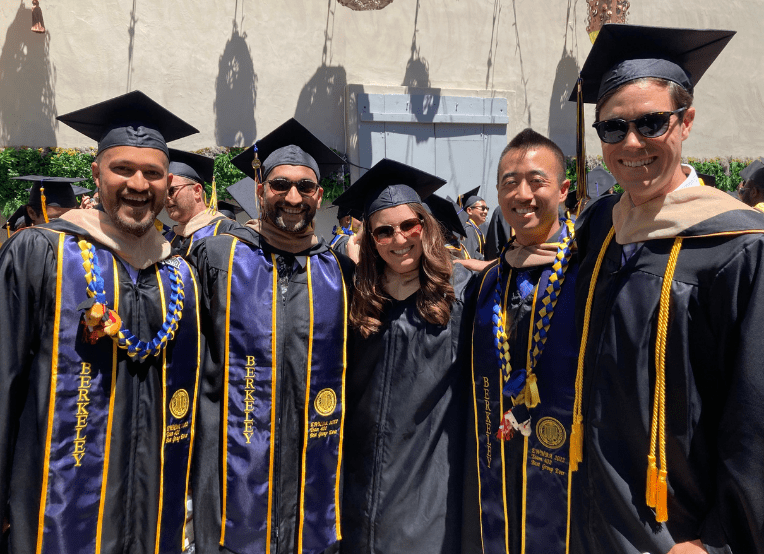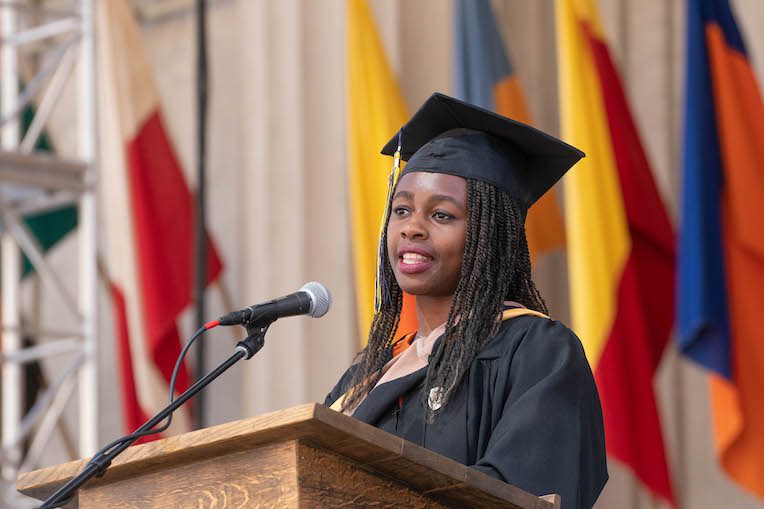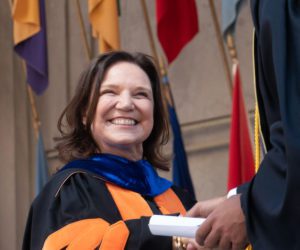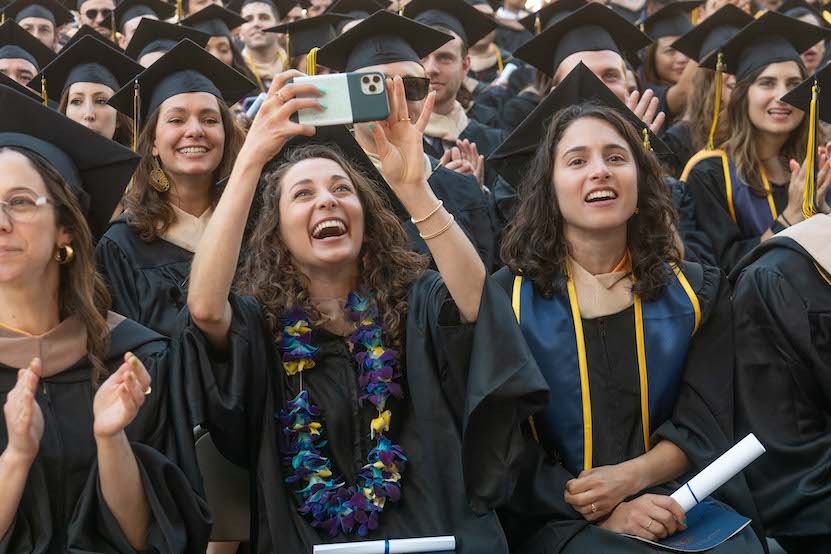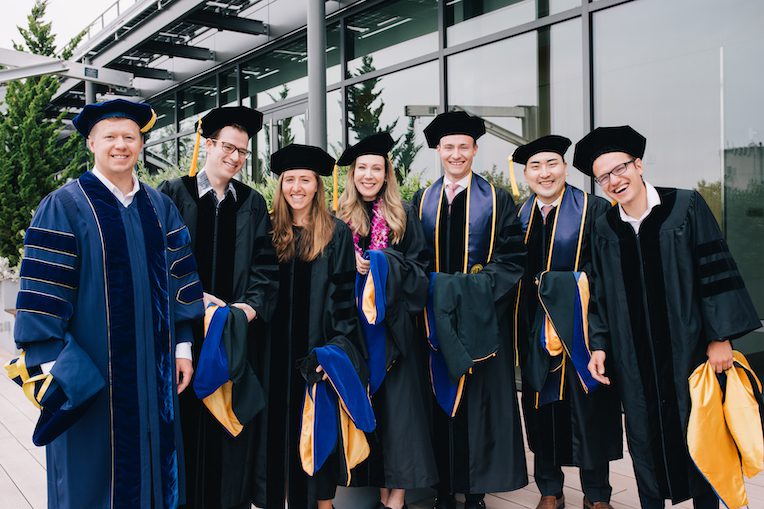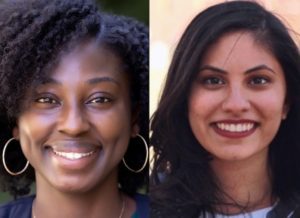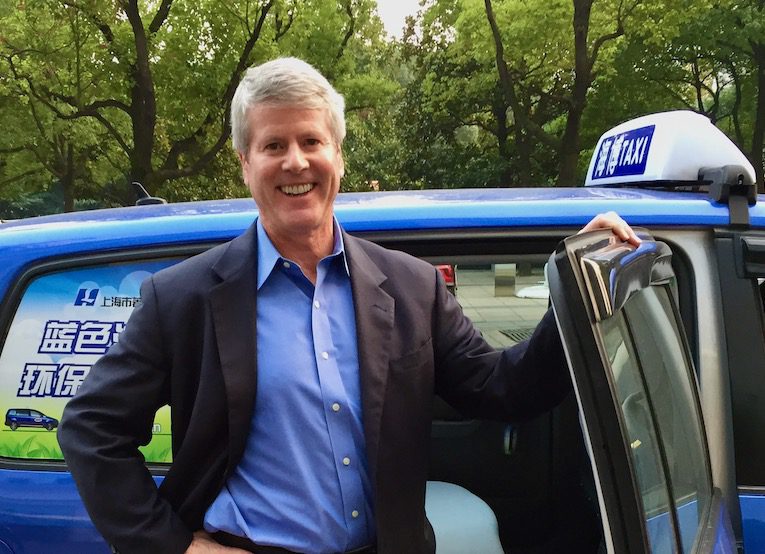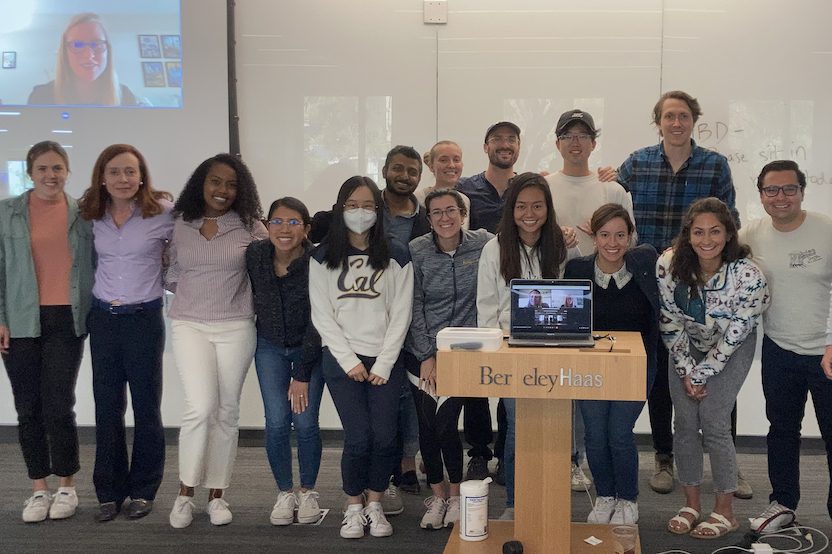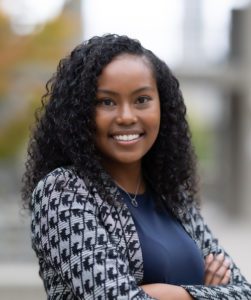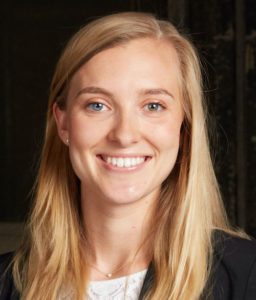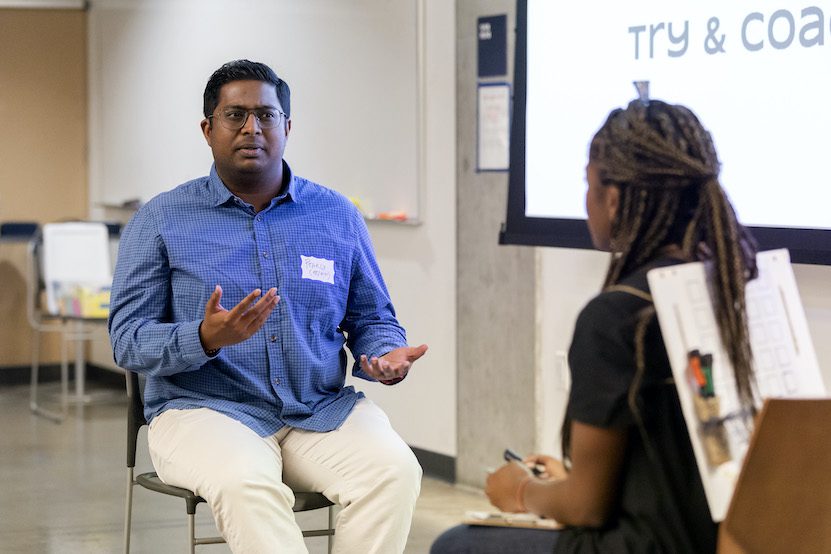
Pearly Khare, MBA 23, was in a difficult spot. His ‘boss’ was confronting him about taking off early for vacation, leaving his colleagues “in the dust.” “I definitely understand how that impacted the team,” he said, adding that he gave her and his team advance notice. Then he apologized.
Afterwards, MBA students who had watched the interaction discussed Khare’s apology to Bree Jenkins, MBA 19, who played the role of his boss.
“If we apologize, and we’re not even sure of what we did or we are not genuinely sorry for what we did, it can be another form of conflict avoidance,” says Jenkins, co-instructor of the new Berkeley Haas MBA pilot course Difficult Conversations: Conflict Lab, where students roleplay tricky situations that are dreaded at work. “We should ask ourselves if it’s just because we want to move past the discomfort.”
From delivering a poor performance review to providing a critical work project assessment to firing an employee, things often got “spicy” during the 10-week session, says co-instructor Francesca LeBaron, MBA 19. But the class isn’t about right or wrong or about debating morality. “It’s about maintaining connection, even when we disagree with the person,” LeBaron said. “What is your objective? Is it to make this person feel heard, to problem solve, or to share your own needs? And how effective were you at achieving that objective?”
The new Conflict Lab extends learnings from longstanding Haas School MBA offerings including Teams@Haas, which delivers a common framework for teamwork across MBA programs, and the core Leading People course. It also compliments experiential learning on conflict management included in the class Leading High Impact Teams and the new core course Communicating in Diverse Environments.
Do you want to be promoted?
Jenkins and LeBaron kicked off their new class with a speed conflict session (similar to speed dating) where students role-played a back-to-back series of conflicts to get a sense of the discomfort they would experience in the class. The exercise helped students to assess if this style of experiential learning was right for them.
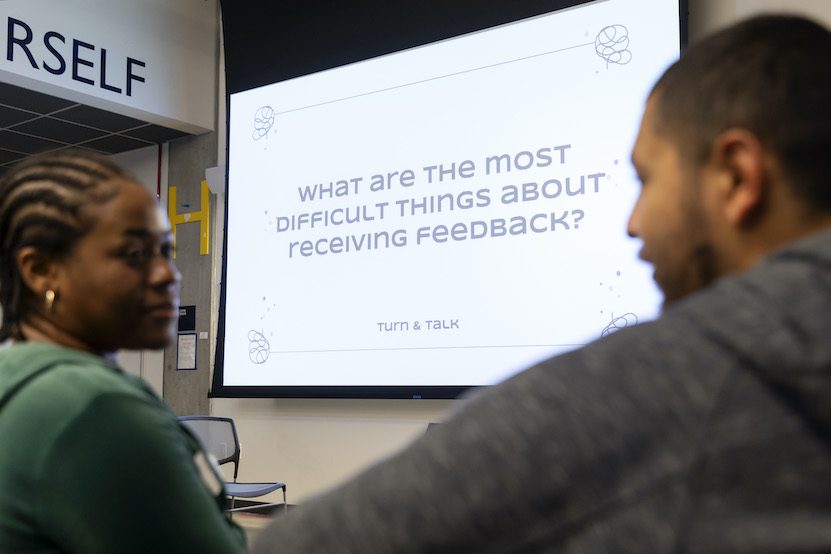
Ten undergraduate UC Berkeley students and a group of Berkeley Haas alumni—ranging from PWC partners to a Google exec to an NYU professor—also joined the class to play roles that would put students in the hot seat.
In one session, alumna Kelly Deutermann, MBA 17, confronted Mridul Agarwal, MBA 23, about why he wanted to get off a project. Deutermann aggressively questioned Agarwal. “Do you want to be promoted? Do you want to be taken seriously? This is your chance.” When Agarwal explained that “it might not be the best project for me at this time,” Deutermann responded with, “This project needs to happen. Do you just not want to work hard to do it?” In this role play, Agarwal had to balance his own bandwidth and need for support with Deutermann’s demands for project management.
After the difficult talk, Agarwal took a deep breath, and the two of them laughed and shook their heads.
Friends coming up with solutions
Jenkins and LeBaron met in their first year at Haas. They were in the same cohort and found they shared a lot in common: They were both Consortium Fellows, student instructors for the Leadership Communications course, and board members for the Haas Center for Equity, Gender & Leadership (EGAL). After graduation, LeBaron went to work as an executive coach and mediator for startups at UC Berkeley’s accelerator SkyDeck; Jenkins runs leadership training courses as a senior leadership development associate at Pixar Animation Studios.
“I noticed themes and trends with what we were doing at work,” Jenkins said. “There was conflict avoidance and harm from conflict that’s not dealt with effectively. We talked to friends in other organizations and we realized quickly that everyone is dealing with workplace conflict.”
For example, LeBaron had recently coached startup founder and former Haas classmate Fahed Essa on how to fire someone. “Fahed is brilliant—has three masters degrees and has started three companies,” she said. “If he is still struggling with this, I bet many people are. I want Haasies to have this skill set that balances being compassionate with being honest and clear.”
After discussing the problem, Jenkins and LeBaron did what they were known for doing at Haas: they came up with a solution. With sponsorship from the Center for Social Sector Leadership at Haas (CSSL), they designed a syllabus for a pilot course completely devoted to managing difficult conversations. The class enrolled 32 MBA students, with a waitlist.
To track their progress throughout the class, students provide one another with feedback, write papers addressing their own conflict styles, and identify conflicts in the media and how they can be improved using lessons from the course framework. “It’s really important that the students find ways to continue to practice this work after the class is complete,” Jenkins said. “They should have a clear understanding of where they are in their conflict journey and what they want to do to continue to grow.”
During their final class, Jenkins and LeBaron took on a role-play with each other. Jenkins played a manager criticizing an employee for botching a critical client presentation. “I expected more of you,” Jenkins said. “I’m hearing that my actions didn’t meet your expectations. Can you tell me more about what that looked like for you?” LeBaron said. After more back and forth, they drilled down to the core issue: Jenkins was frustrated and disappointed because she wanted to appear competent in front of the client. The two decided to review all future presentations together before going to a client.
LeBaron asked the class to consider what Jenkins felt. “I don’t know if I made typos, but in her mind I made those mistakes,” she said. Her objective, she said, was to better understand her boss’ experience and unmet needs. “I can still hold my experience as true for me, while being curious about understanding her experience,” LeBaron said.
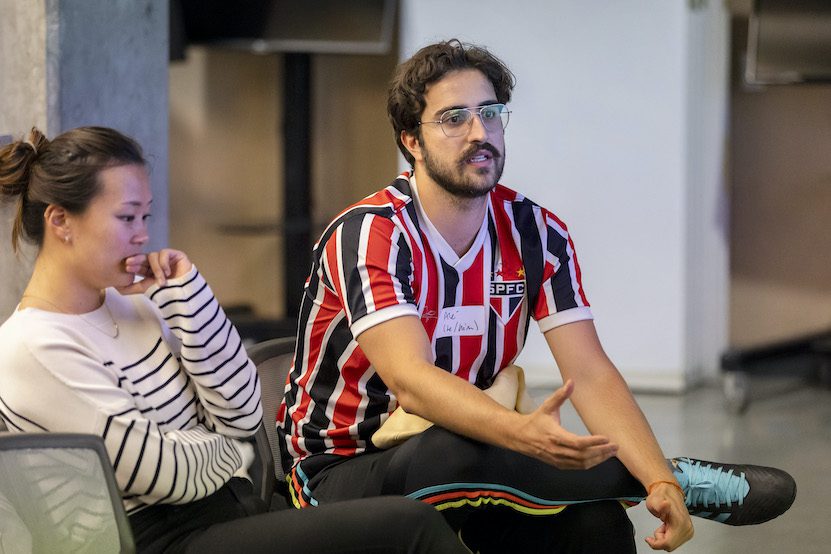
Working past fear through practice
After the 10-week class ended, students who identified themselves as conflict-avoidant at the start of Conflict Lab said they were starting to work past it.
Daryl Pugh, MBA 23, an executive recruiter before he came to Haas, said he’s learning to be “comfortable with discomfort” and was already using what he learned in class to help a friend through the difficulty of laying off employees. “I tried to talk to her through having that conversation and processing other people’s feelings, understanding what was happening and her interpretation of what was happening. We had a couple of sessions.”
What Pugh said he found most surprising over the weeks was understanding how inaccurately he can interpret the actions of others. “We need to focus on not ascribing emotion to people that could be just wrong,” he said. “That’s how we are trained our whole lives, even in social settings, is to interpret other people’s feelings. The only way to know how a person is feeling is to ask. This class taught me how to get others to express their feelings, then I can move past my observations and interpretations to a new level of understanding.”
Mariam Al-Rayes, MBA 23, said the course provided a set of tools that she plans to use at work and beyond. “I wish we’d learned this earlier in life,” she said. “The role playing was so useful—like when alumni talked to us as our managers. It was realistic and we applied what we learned in class first-hand.”
On the journey to create a new class of conflict-embracing leaders, LeBaron and Jenkins are well on their way—and plan to offer the class again in Fall 2023.
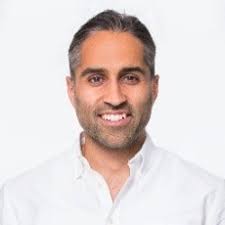 Karan Singh, BS 05, said his career purpose didn’t become clear until a life-changing event 13 years ago.
Karan Singh, BS 05, said his career purpose didn’t become clear until a life-changing event 13 years ago.